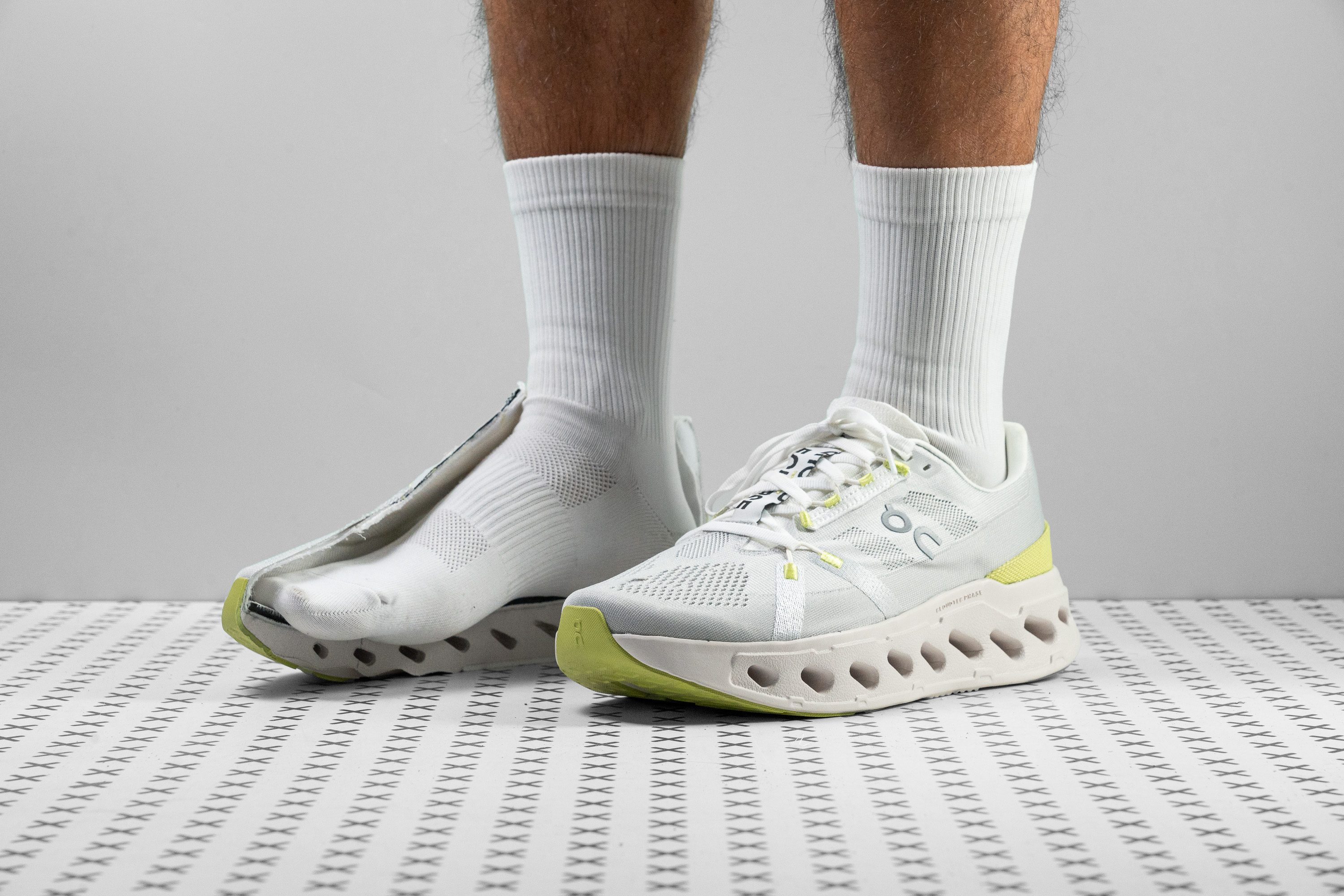Our verdict
- Top pick in best On running shoes
- Top pick in best running shoes for Achilles tendonitis
Pros
- Most cushioned On model to date
- New CloudTec Phase technology enhances speed
- Improved upper with better durability and breathability
- Extremely long-lasting outsole and upper
- Effective heel lock
- Good stability considering its stack height
- Comfortably smooth ride
- Excellent lockdown for regular-width feet
Cons
- Helion foam lacks energy return
- Seems overpriced, like other On models
- Actual drop significantly varies from the stated measurement
Audience verdict
- Top 14% in road running shoes
- Top 10% in On running shoes
Comparison
The most similar running shoes compared
+ + Add a shoe | |||||
|---|---|---|---|---|---|
| Audience score | 90 Superb! | 87 Great! | 93 Superb! | 89 Great! | |
| Price | £170 | £140 | £130 | £170 | |
| Pace | Daily running | Daily running | Daily runningTempo | Daily running | |
| Shock absorption | High | High | High | High | |
| Energy return | Moderate | High | High | Moderate | |
| Traction | High | High | Moderate | High | |
| Arch support | Neutral | Neutral | Neutral | Neutral | |
| Weight lab Weight brand | 9.6 oz / 272g 9.7 oz / 275g | 8.2 oz / 232g 8.3 oz / 235g | 7.9 oz / 223g 7.9 oz / 224g | 10.3 oz / 292g 10.4 oz / 295g | |
| Lightweight | ✗ | ✓ | ✓ | ✗ | |
| Drop lab Drop brand | 9.4 mm 6.0 mm | 9.6 mm 5.0 mm | 8.0 mm 6.5 mm | 6.6 mm 6.0 mm | |
| Strike pattern | HeelMid/forefoot | HeelMid/forefoot | HeelMid/forefoot | Mid/forefoot | |
| Size | True to size | True to size | True to size | Slightly large | |
| Midsole softness | Balanced | Balanced | Balanced | Balanced | |
| Difference in midsole softness in cold | Small | Big | Small | Small | |
| Toebox durability | Decent | Decent | Bad | Good | |
| Heel padding durability | Bad | Bad | Good | Decent | |
| Outsole durability | Good | Good | Good | Good | |
| Breathability | Moderate | Breathable | Breathable | Warm | |
| Width / fit | Medium | Medium | Medium | Wide | |
| Toebox width | Medium | Narrow | Medium | Medium | |
| Stiffness | Stiff | Moderate | Flexible | Stiff | |
| Torsional rigidity | Stiff | Stiff | Stiff | Moderate | |
| Heel counter stiffness | Moderate | Stiff | Moderate | Moderate | |
| Rocker | ✓ | ✓ | ✓ | ✓ | |
| Heel lab Heel brand | 39.9 mm 37.0 mm | 36.0 mm 37.0 mm | 36.1 mm 38.5 mm | 37.9 mm 35.0 mm | |
| Forefoot lab Forefoot brand | 30.5 mm 31.0 mm | 26.4 mm 32.0 mm | 28.1 mm 32.0 mm | 31.3 mm 29.0 mm | |
| Widths available | Normal | NormalWide | NormalWide | Normal | |
| Orthotic friendly | ✓ | ✓ | ✓ | ✓ | |
| Season | All seasons | SummerAll seasons | SummerAll seasons | All seasons | |
| Removable insole | ✓ | ✓ | ✓ | ✓ | |
| Ranking | #44 Top 12% | #157 Top 41% | #3 Top 1% | #108 Top 29% | |
| Popularity | #190 Top 50% | #15 Top 4% | #12 Top 4% | #29 Top 8% |
Who should buy
Following our series of tests in the lab, we've determined that the On Cloudeclipse is a good choice for:
- On loyal fans in search of a max-cushion daily trainer capable of handling multiple paces.
- Runners who favour firmer yet responsive midsoles and don't mind splurging on a £180 shoe.
- Anyone looking for a high-stack, maximalist running shoe that combines premium-quality materials with an unique design and ride.
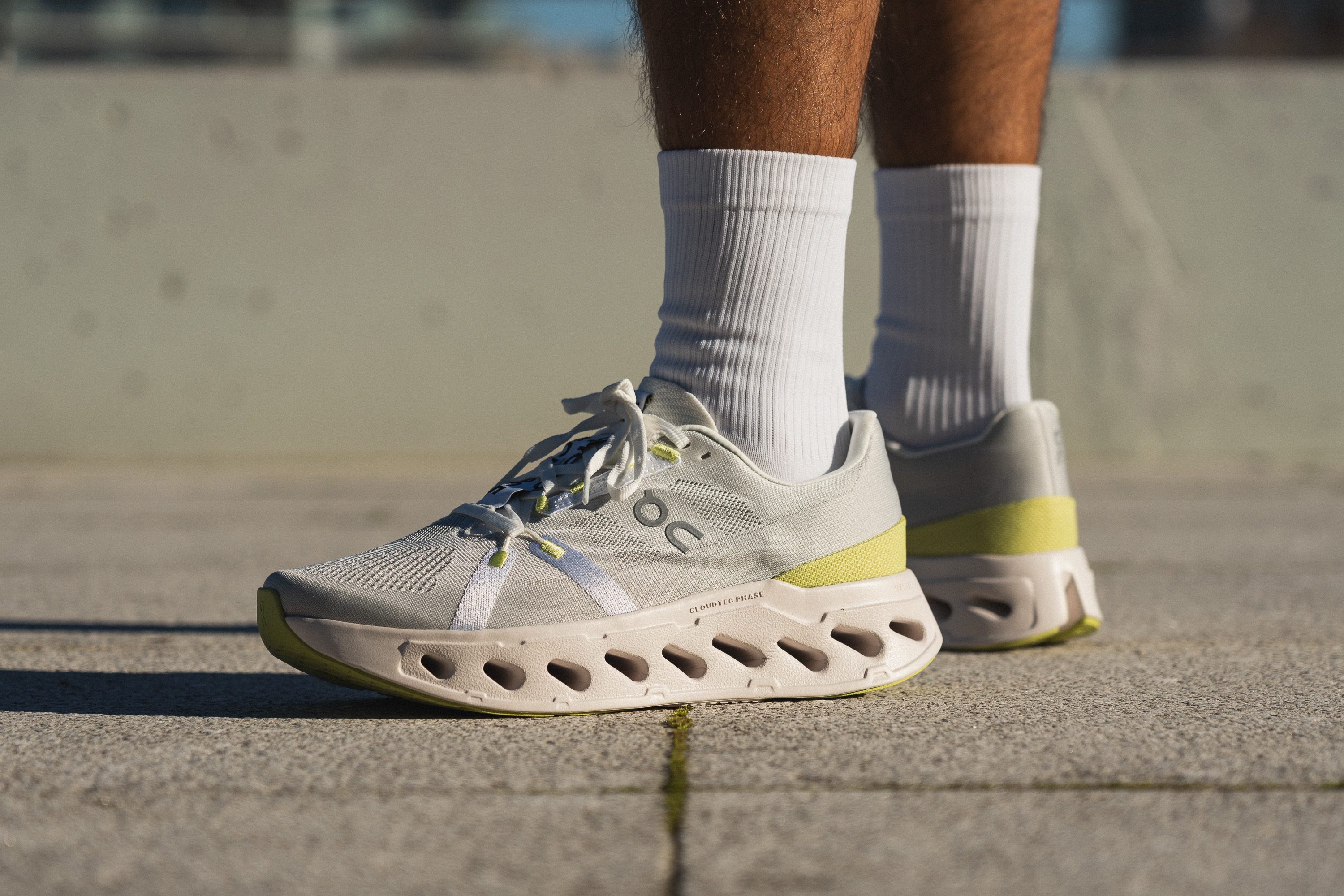
Who should NOT buy
If you're hunting for an ultra-plush, marshmallow-soft running experience, the Cloudeclipse isn't for you. It's pretty much the opposite. Instead, we suggest checking out softer, high-stack options like the ASICS Nimbus 25 or New Balance SC Trainer v2.
Also, the Cloudeclipse isn't top-notch in terms of energy return. The Helion foam performs well but doesn't quite match the best on the market. For a better boost and quicker propulsion, we recommend shoes like the ASICS Superblast or the Hoka Mach X, which are equipped with PEBA-based foams.
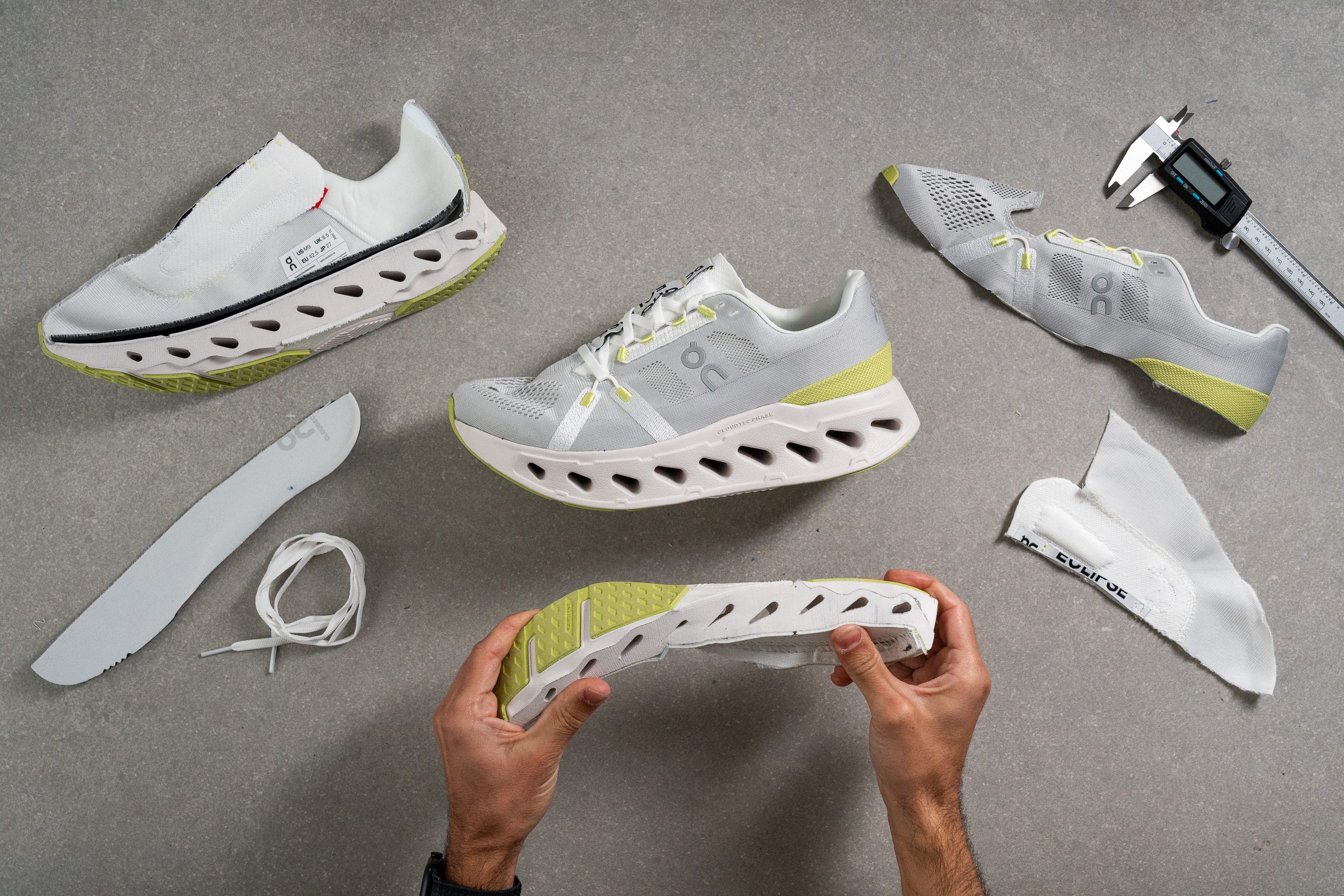
Cushioning
Shock absorption
There’s no shortage of cushioning in the Cloudeclipse. We measured an impressive 141 SA in the heel and 124 SA in the forefoot, turning this shoe into a go-to option for long runs and heavier runners.
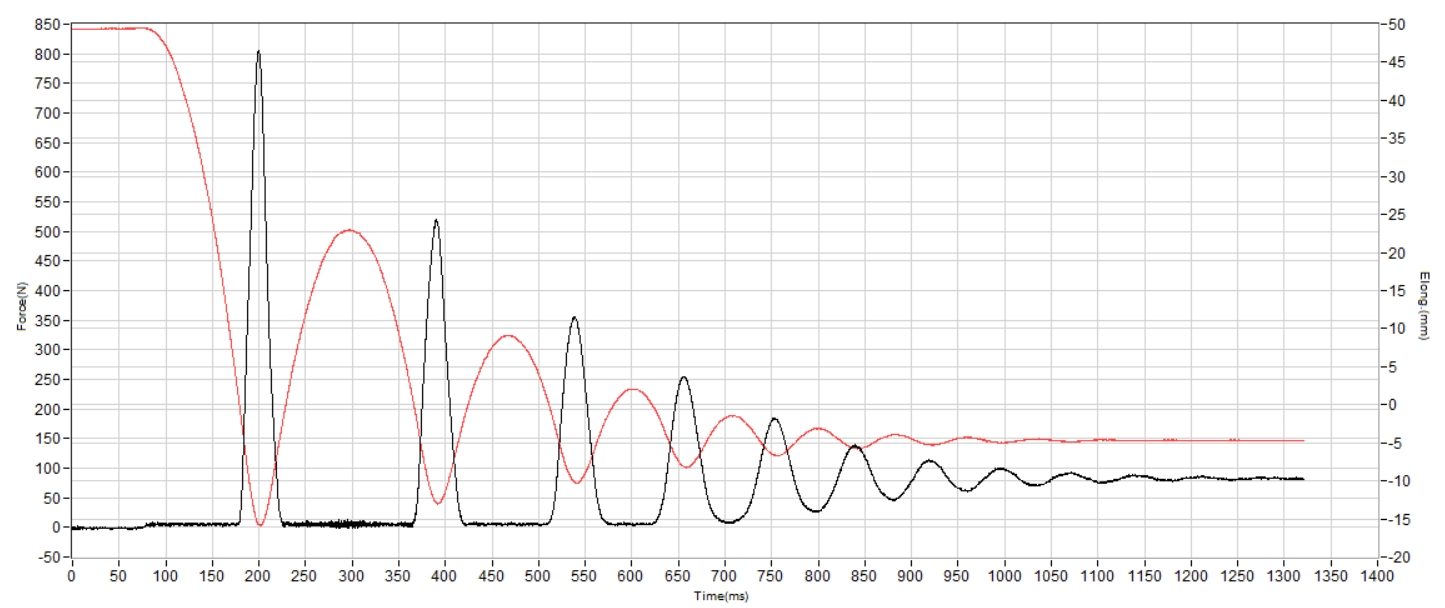
| Cloudeclipse | 141 SA |
| Average | 130 SA |
Energy return
On urgently needs to rethink the foam in their flagship trainers—charging this much for a shoe that only returns 55.1% feels out of touch. While it's fine for easy runs, the lack of bounce stands out when picking up the pace.
| Cloudeclipse | 55.1% |
| Average | 58.6% |
Heel stack
We're certain that On aimed to place the Cloudeclipse in the "max stack" category, and they've succeeded. At 39.9 mm, it's just below the World Athletics race-day legal regulation, and it really feels high on every run.
This makes it a fantastic option for heel strikers who need plenty of cushion underfoot, as well as for those looking for a reliable, set-and-forget shoe for long runs. However, we can also confirm that due to the massive stack, it's not the best shoe for tackling corners.
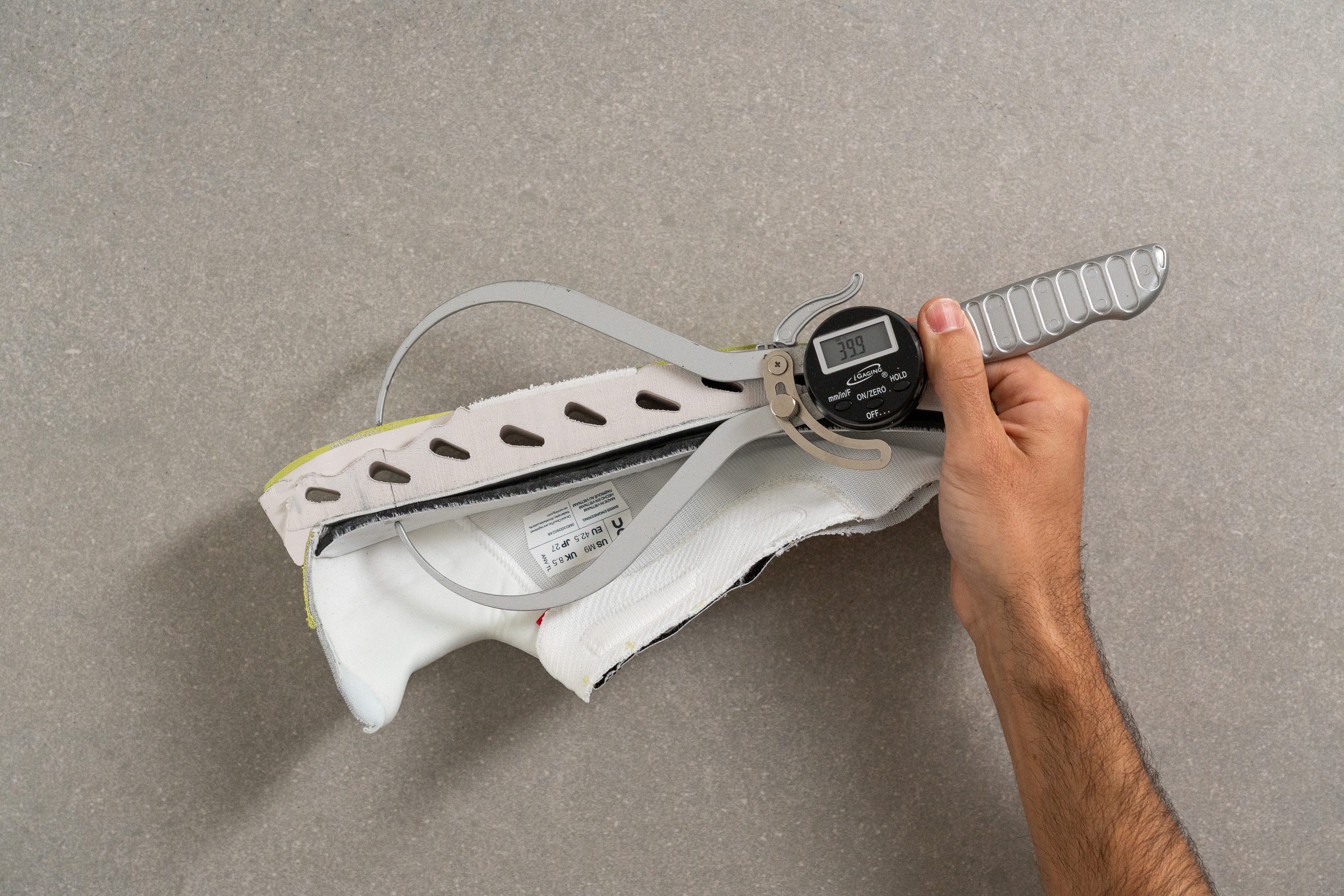
| Cloudeclipse | 39.9 mm |
| Average | 34.8 mm |
Forefoot stack
The forefoot is also heavily stacked at 30.5 mm, so our previous comments about heel strikers also apply to midfoot and forefoot strikers.
Overall, it's exactly what you'd expect from a maximalist, cushioned shoe.
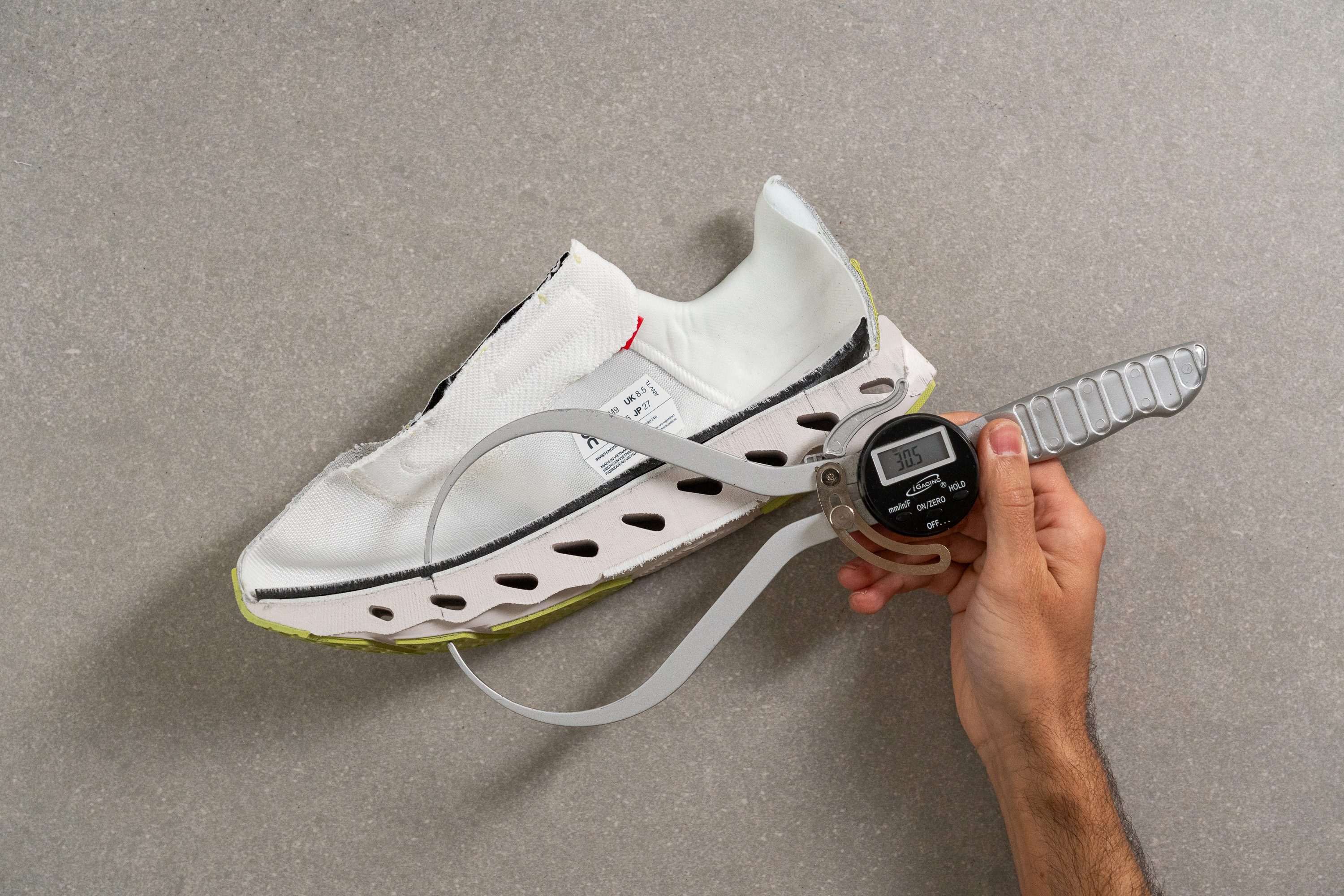
| Cloudeclipse | 30.5 mm |
| Average | 26.2 mm |
Drop
However, we noticed a significant discrepancy with the brand regarding the Drop. On claims a 6-mm offset, but our measurements, done multiple times following World Athletics regulations, consistently showed a 9.4-mm heel-to-toe drop.
What does this mean? With nearly a 10-mm drop, the shoe is more suited for rearfoot strikers or anyone looking to ease the strain on their calves and Achilles tendons, though it's still versatile enough for anyone to use.
Overall, the 8-to-10-mm range is a common sweet spot for brands aiming to appeal to a wide range of runners.
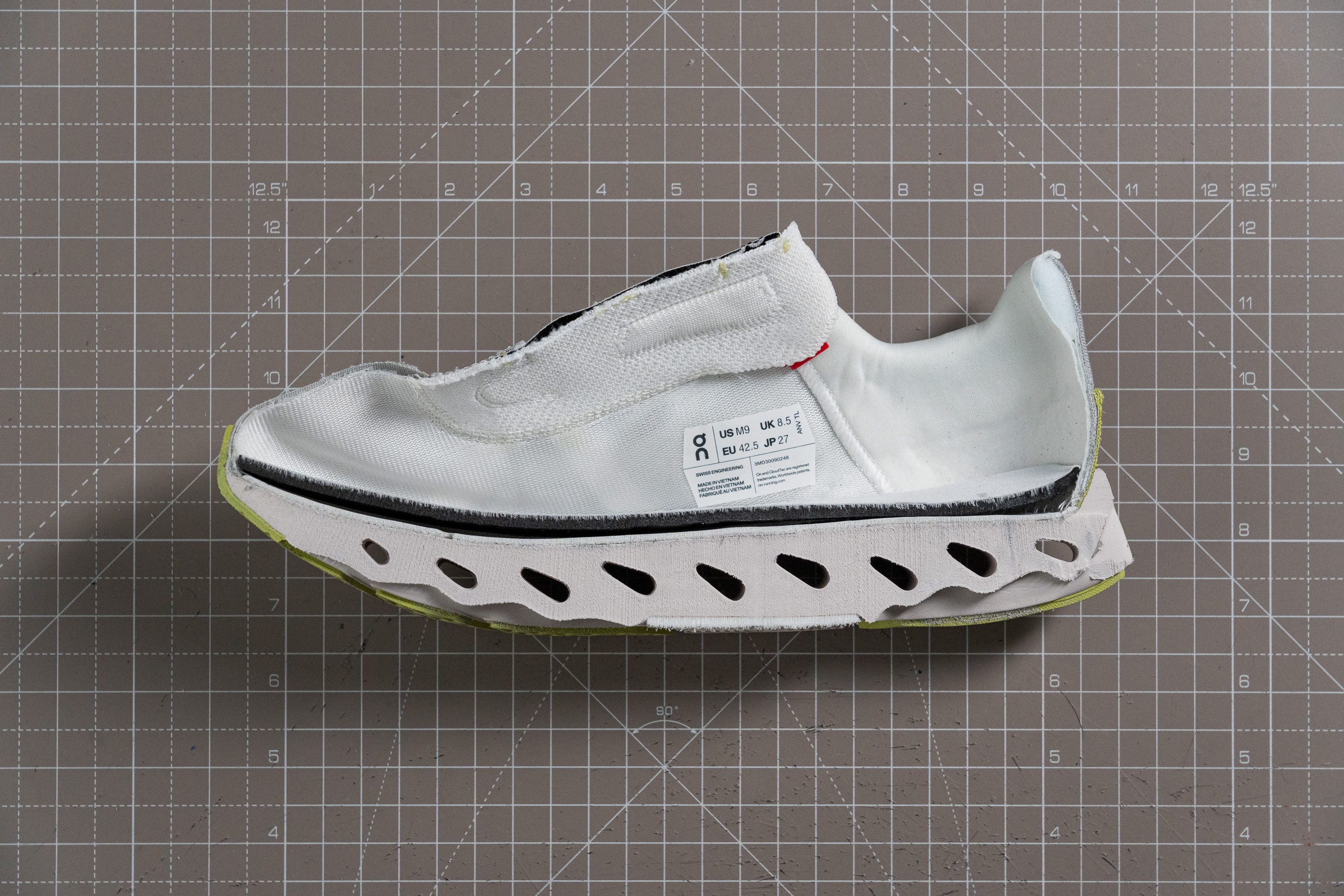
| Cloudeclipse | 9.4 mm |
| Average | 8.6 mm |
Midsole softness
UpdatedSo, what about the midsole? At £180, we're expecting something really great, and this is... kinda great.
On has utilised its all-new CloudTec Phase technology. Here, the signature clouds are more precisely angled to collapse in a sequential manner. This happens based on their shape and size, in the direction of travel, with varied sizing on the lateral and medial sides.
The angled design enhances forward motion, giving it an edge over other On shoes like the Cloudmonster. However, the foam used is still Helion, a mix of EVA and OBC, which we measured at a firm 47.2 AC.
What does this mean? Well, the Cloudeclipse it's not super soft, but it feels more plush than other On shoes due to this new geometry. But there's more to the midsole—it also features an updated X-shaped TPU Speedboard plate, aiding in stability and propulsion.
In summary, it feels softer and bouncier compared to other On shoes, but it's still on the firmer side.
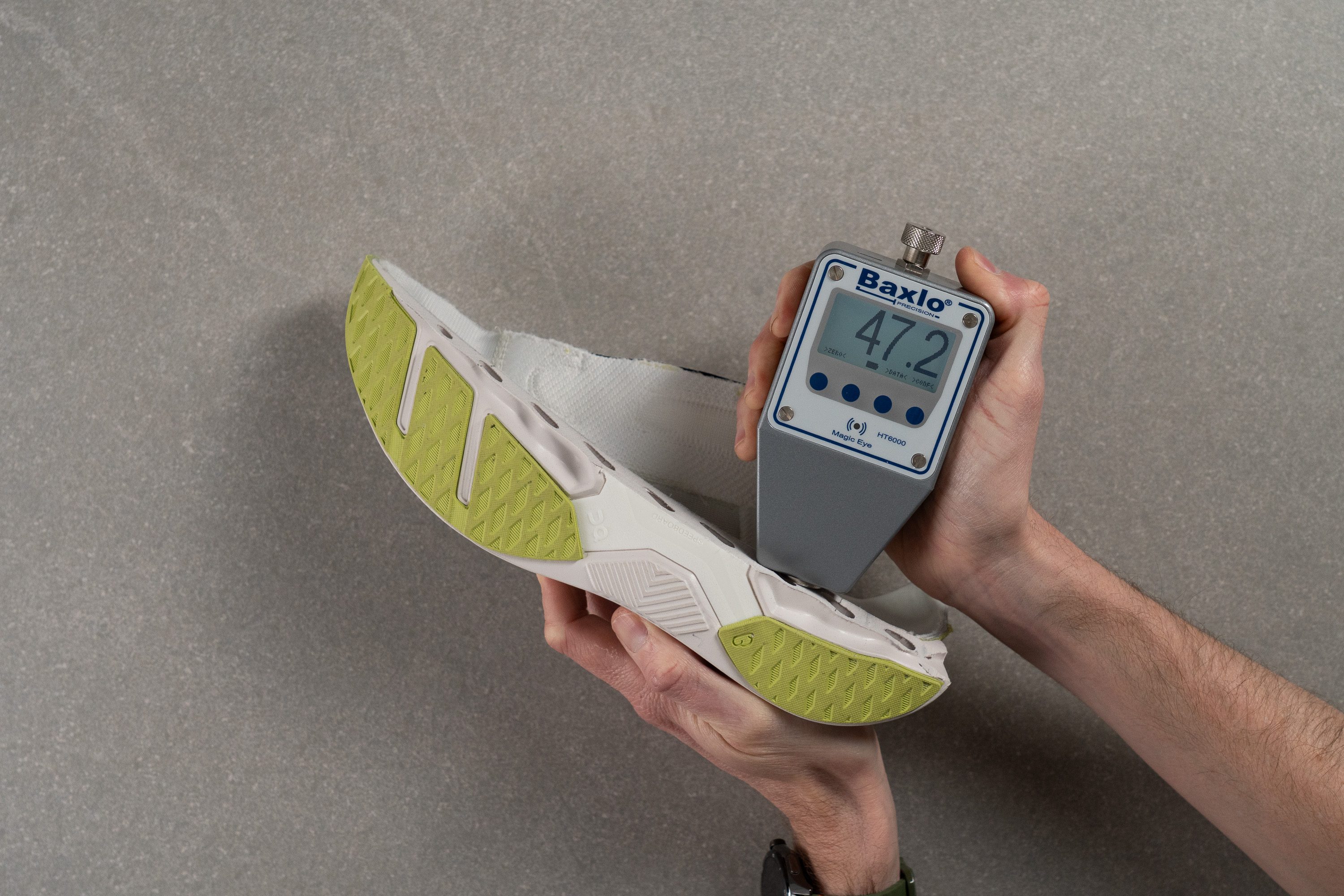
| Cloudeclipse | 47.2 AC |
| Average | 36.4 AC |
Size and fit
Size
On Cloudeclipse fits true to size (97 votes).
Internal length
| Cloudeclipse | 267.6 mm |
| Average | 269.4 mm |
Width / Fit
In our lab tests, we noticed that On often leans towards narrow designs. However, with the Cloudeclipse, they've pleasantly surprised us with average-sized interiors.
Our measurements show it's 95.3 mm wide, offering ample room for most feet. This ensures comfort during even the longest training runs.
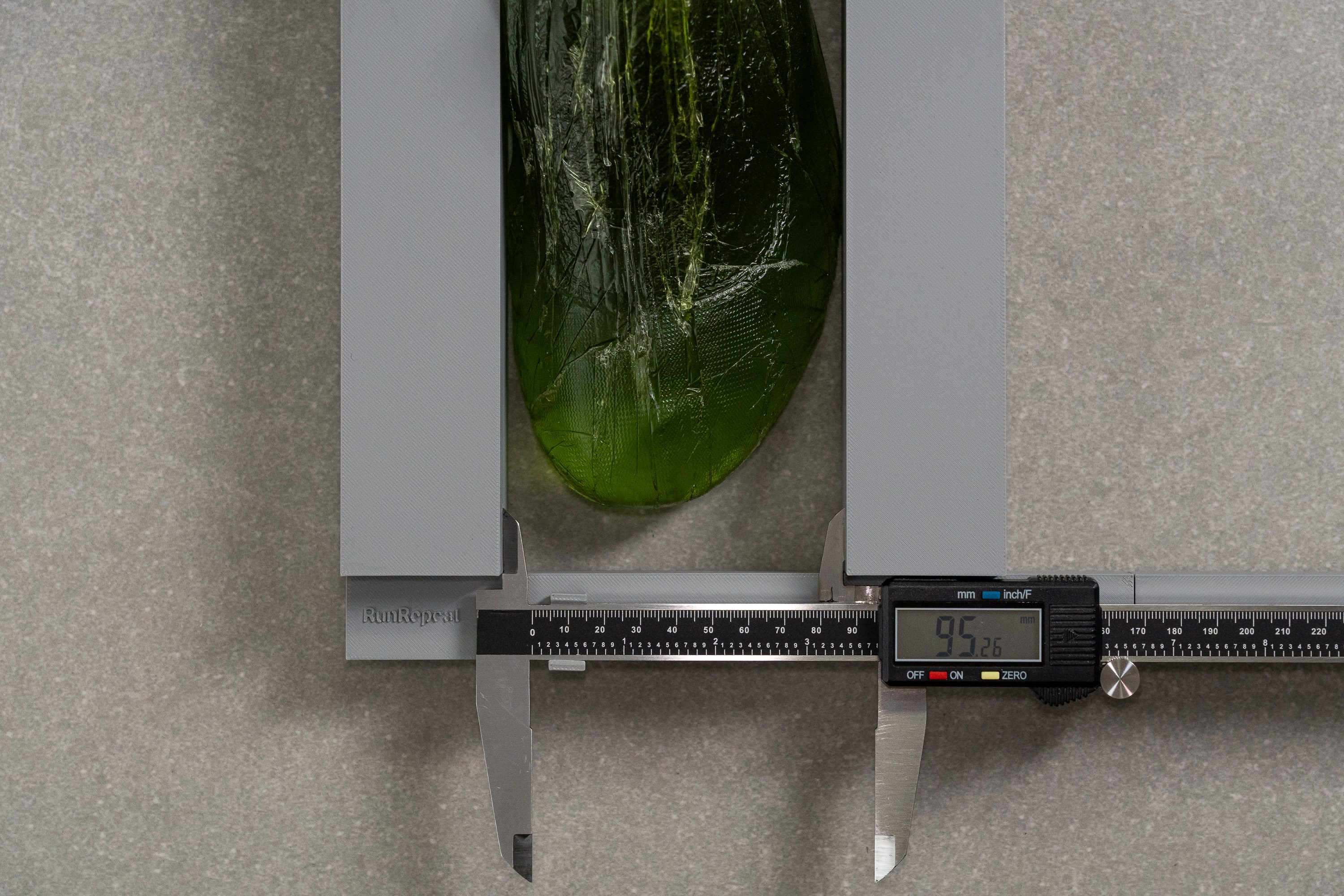
| Cloudeclipse | 95.3 mm |
| Average | 95.1 mm |
Toebox width
Our second measurement plays a key role in evaluating the shoe's internal space, as excessive tapering in the toebox can severely compromise comfort. This holds true for the Cloudeclipse, and measuring 71.5 mm in the big toe area confirmed our observations.
While this shoe should still work for most runners, those with wider feet may find the closed toebox less accommodating.
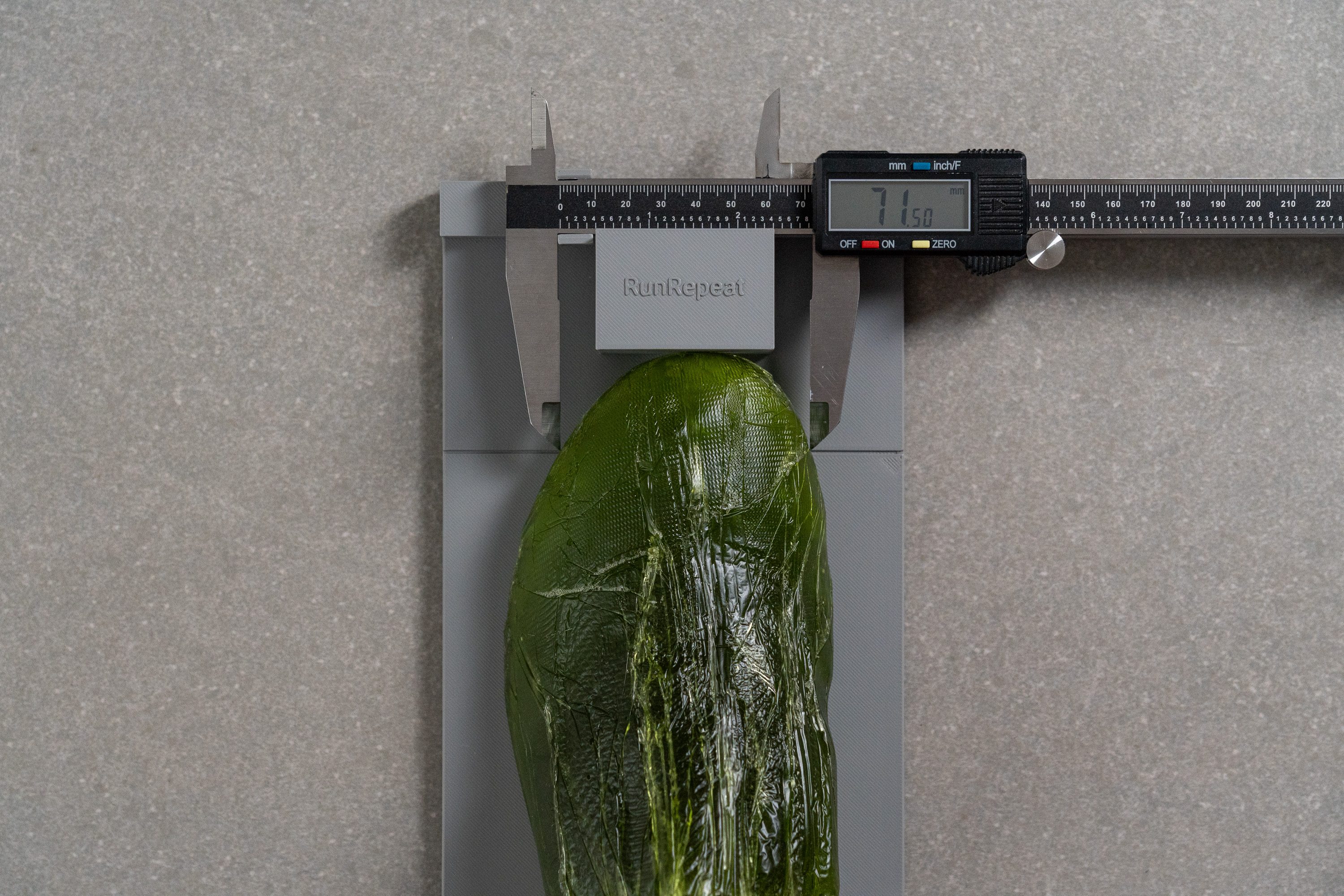
| Cloudeclipse | 71.5 mm |
| Average | 73.3 mm |
Toebox height
We measured an impressive vertical clearance of 28.8 mm in the toebox, guaranteeing that runners won't experience any uncomfortable pressure on their toes.
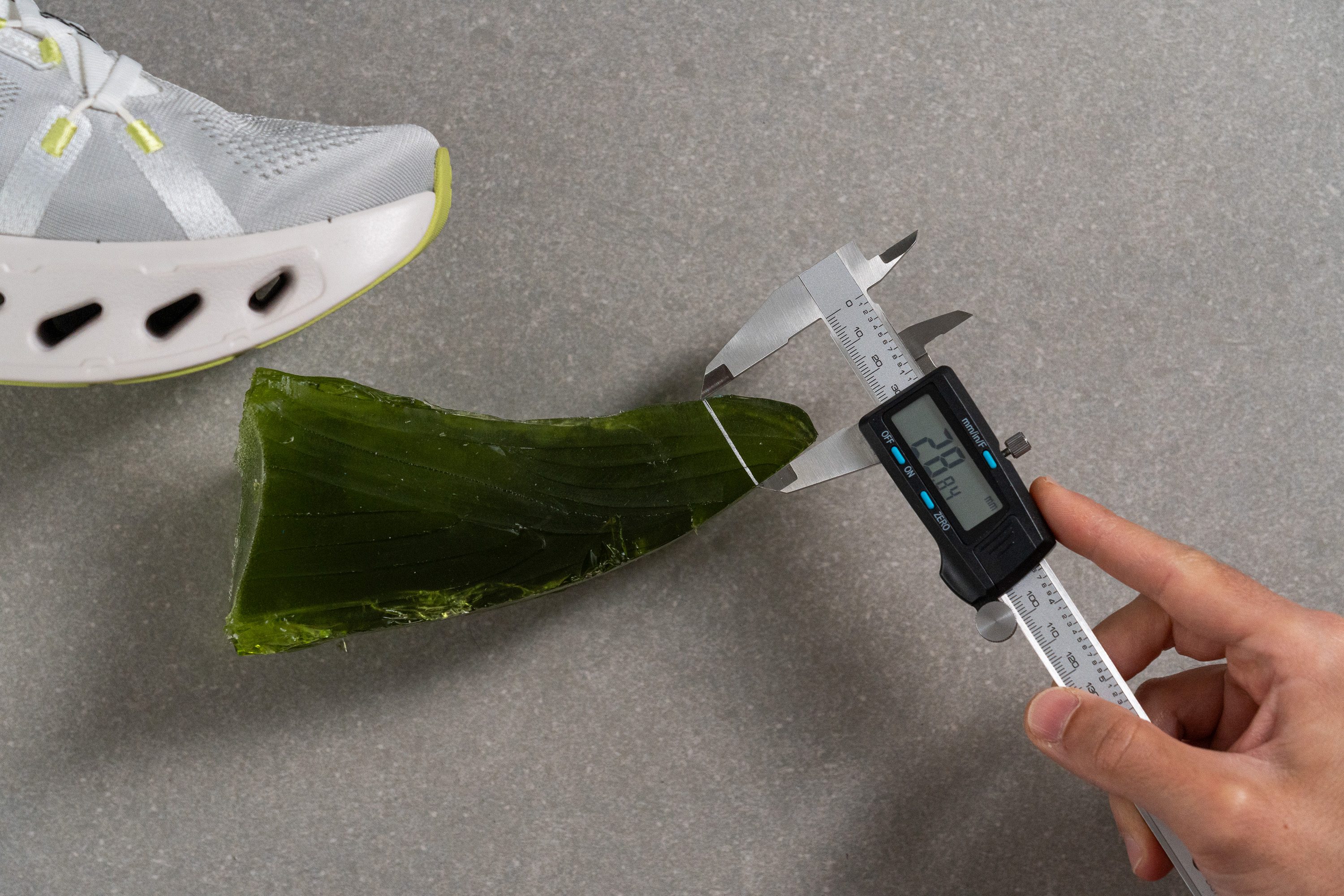
| Cloudeclipse | 28.8 mm |
| Average | 27.0 mm |
Traction / Grip
Traction test
Taking the Cloudeclipse through our SATRA TM144 grip test returned a slightly below-average friction score of 0.45. While it's not the tackiest bite, it gives the shoe decent traction on wet roads and sidewalks.
| Cloudeclipse | 0.45 |
| Average | 0.49 |
Outsole design
This outsole returns to a more traditional layout with flatter rubber zones and fewer deep cutouts. We noticed the heel and forefoot now feature wide, grippy segments with a classic zigzag texture, boosting both traction and durability.
It’s a departure from the usual CloudTec pods and should appeal to runners seeking a more classic feel.
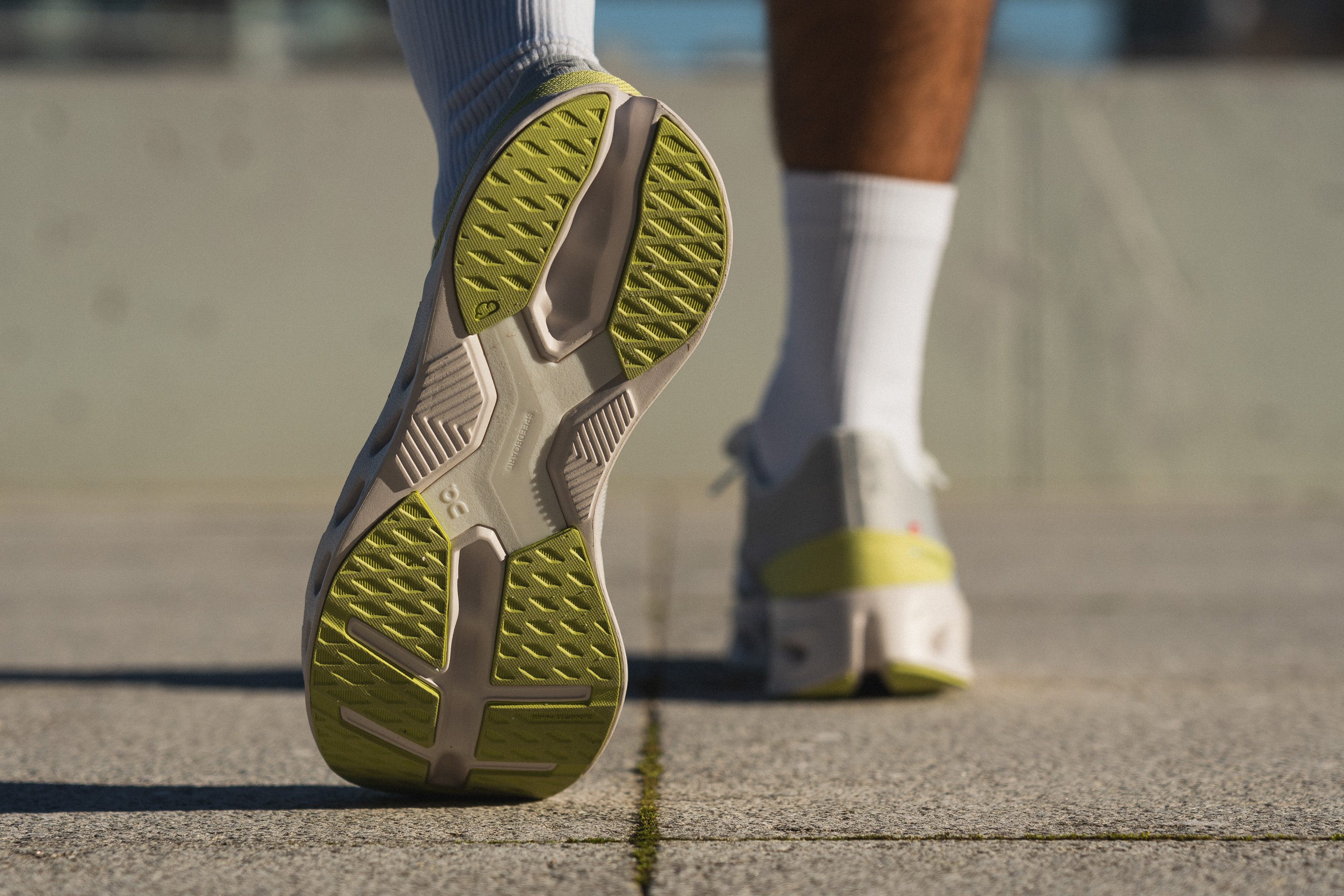
Flexibility / Stiffness
As a versatile shoe designed to handle a wide range of paces, it needs to offer a balance—some flexibility for comfort, but also enough stiffness to provide a snappy ride.
With 18.1N of force required for flexibility, it lands right in the middle, which works well for this type of do-it-all trainer.
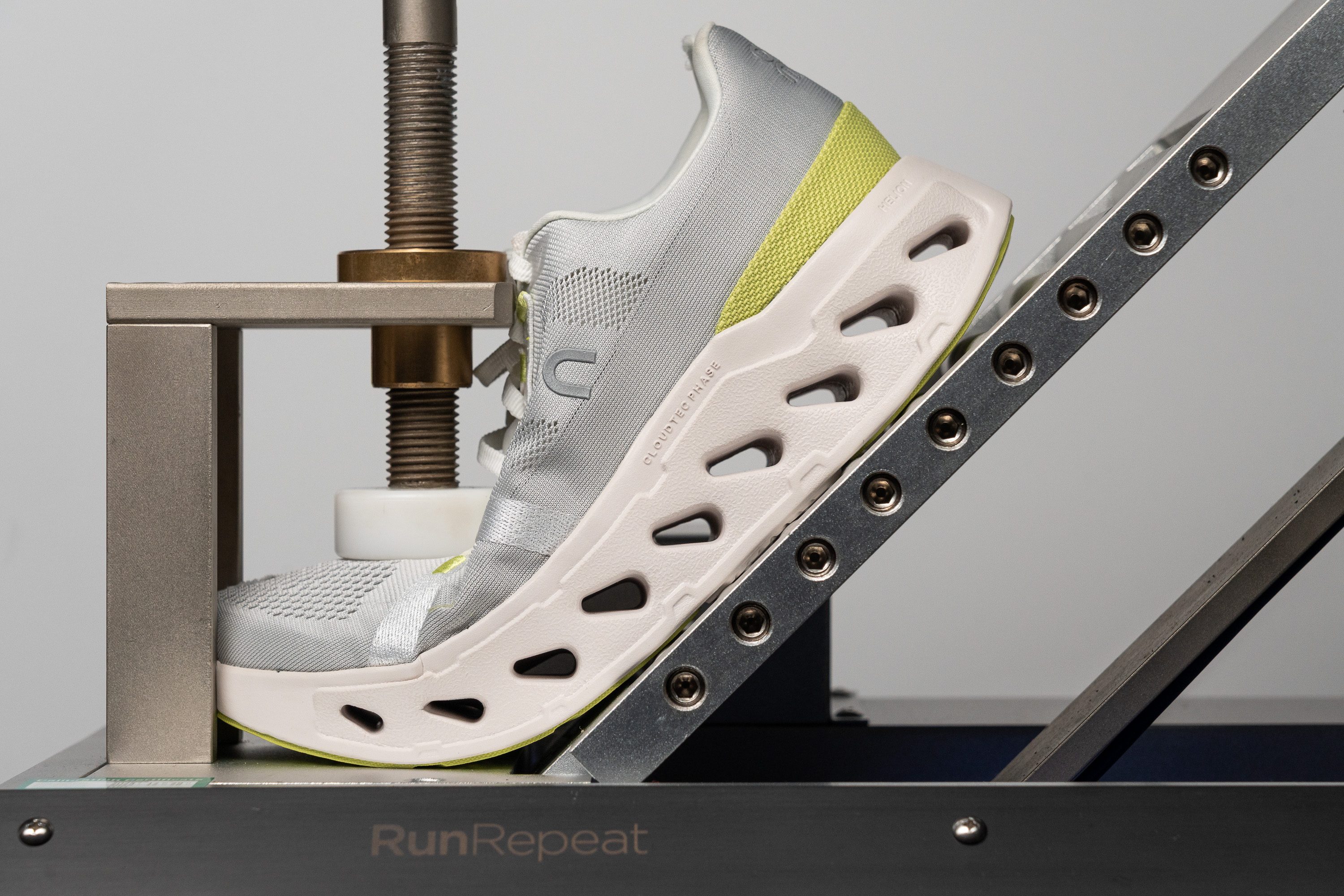
| Cloudeclipse | 18.1N |
| Average | 15.3N |
Stiffness in cold
We repeated the 20-minute freezing test to see how stiff the shoe gets in harsh winter conditions. Afterward, it took us 37.7N of force to bend the shoe. That's not as flexible anymore!
| Cloudeclipse | 37.7N |
| Average | 36.2N |
Stiffness in cold (%)
The jump between the two tests is 34.6%, and although it's below average, the difference is definitely significant and hard to ignore.
| Cloudeclipse | 35% |
| Average | 33% |
Weight
Weighing just 9.6 oz (272g), On has done a good job keeping the Cloudeclipse below the 10-oz benchmark for a maximalist, high-stack shoe.
This lightness also makes the shoe suitable for faster sessions, like tempo runs or long workouts with marathon-pace blocks. However, if you're looking for something even lighter, On has the Cloudsurfer 7, which features the same CloudTec Phase technology but with a lower stack height.
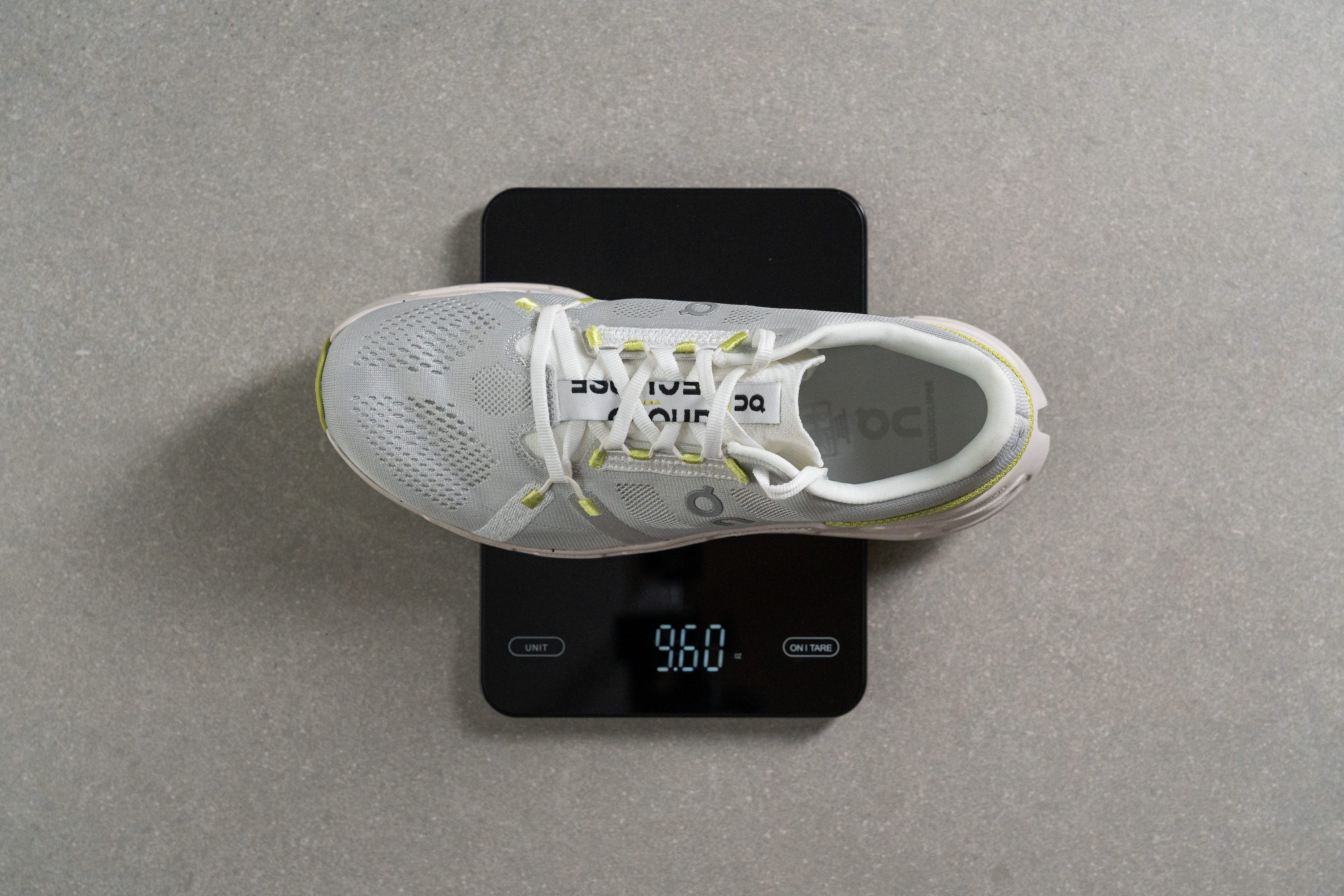
| Cloudeclipse | 9.6 oz (272g) |
| Average | 9.3 oz (264g) |
Breathability
On shoes have often faced complaints about breathability from our team, with each pair seeming to lack airflow for those scorching summer days. But that's history now.
The Cloudeclipse has hit an amazing balance in terms of breathability, earning a fantastic 4 out of 5 in our tests. While some might wish for a perfect 5, we think differently—this is an all-year shoe, so retaining some warmth in winter is crucial.
Shining a light through the shoe confirmed our findings from the smoke test—the toebox is the star of the shoe. It's equipped with dozens of large ventilation holes, providing a refreshing airflow to your feet, complemented by thinner sections in the tongue.
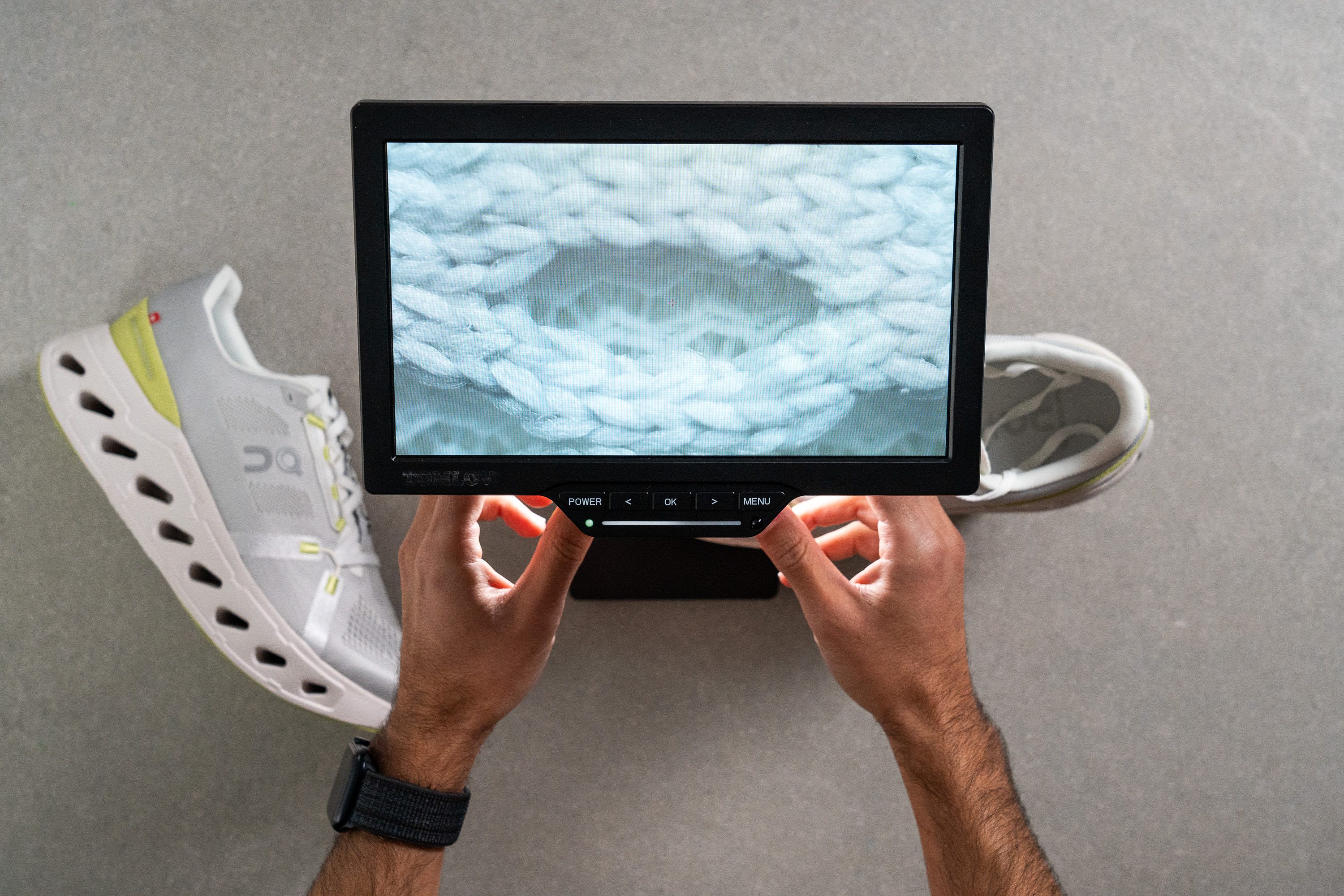
Driven by curiosity, we zoomed in under the microscope to get a closer look at these holes. They are impressively large but lined with an inner fabric for added comfort.
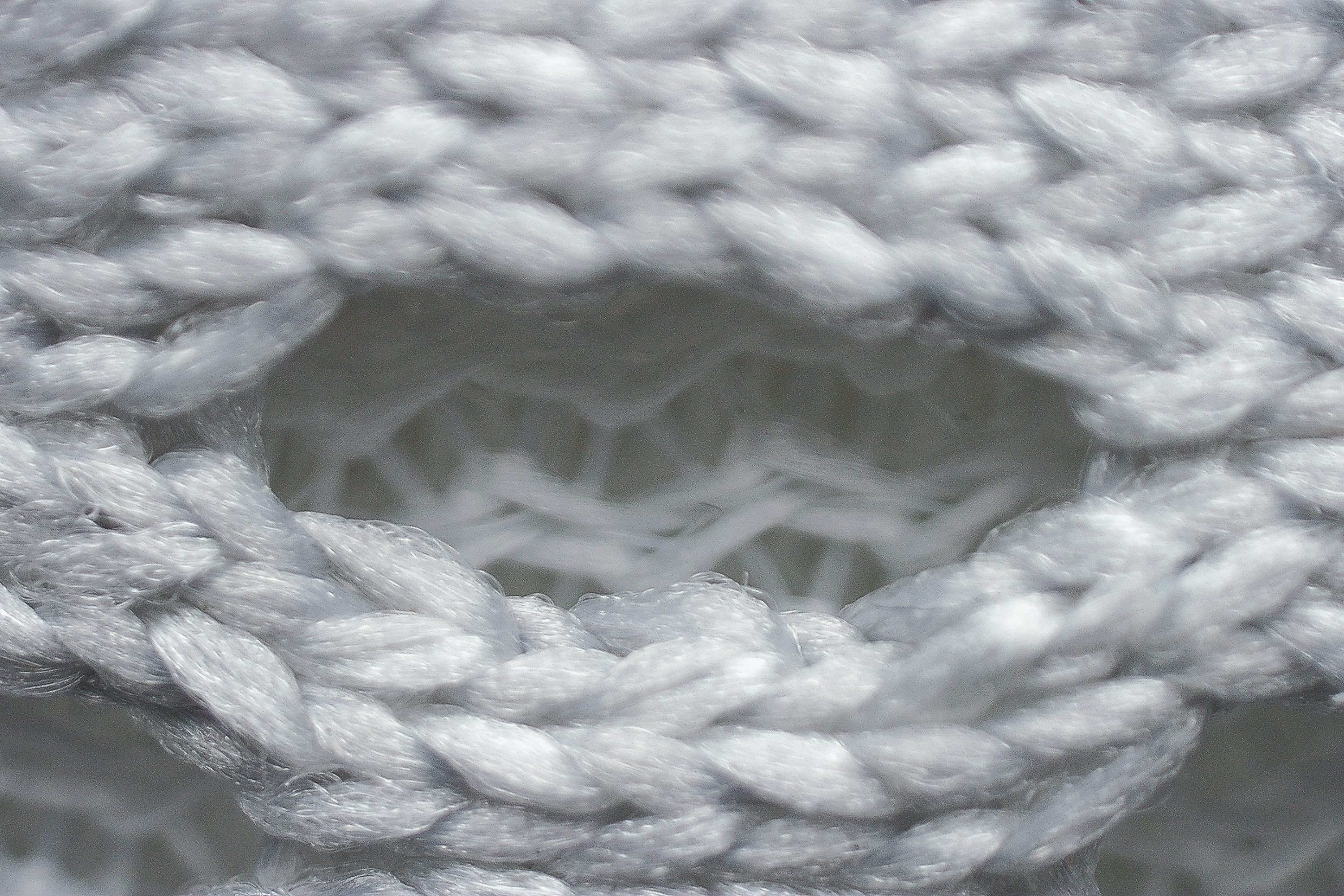
It's rare to find a double-layer upper with such impressive breathability, and a major credit goes to that inner fabric. It's incredibly thin and doesn't hinder airflow in the slightest.
| Cloudeclipse | 4 |
| Average | 3.7 |
Stability
Lateral stability test
Just before, when we discussed the midsole softness, we briefly mentioned the X-shaped TPU Speedboard plate. Looking at the dimensions of the shoe, it seems clear to us that it's On's main feature to enhance stability. But does it work?
Well, it does. With its massive stack height and lack of support elements, we found it decently stable, but only for neutral runners. However, we don't think it's a good option for those who need extra stability. If that's you, check out something like the Hoka Gaviota 5.
Torsional rigidity
With a TPU plate, the torsional rigidity can't be as low as 2 or 3. In fact, we rated it at 4 out of 5. It does a good job keeping the shoe flat and stable during every landing.
| Cloudeclipse | 4 |
| Average | 3.5 |
Heel counter stiffness
The heel counter appeared pretty average to us, providing enough flexibility to be comfortable for any runner. We gave it a 3 out of 5, which is in line with most road running shoes.
| Cloudeclipse | 3 |
| Average | 2.9 |
Midsole width - forefoot
At just 112.4 mm wide, the shoe is surprisingly narrow considering its massive stack height.
This has its upsides—it doesn't feel clunky at all—and its downsides—it slightly hinders stability. But the cool part is that it stays true to On's DNA, and that's always a good thing.
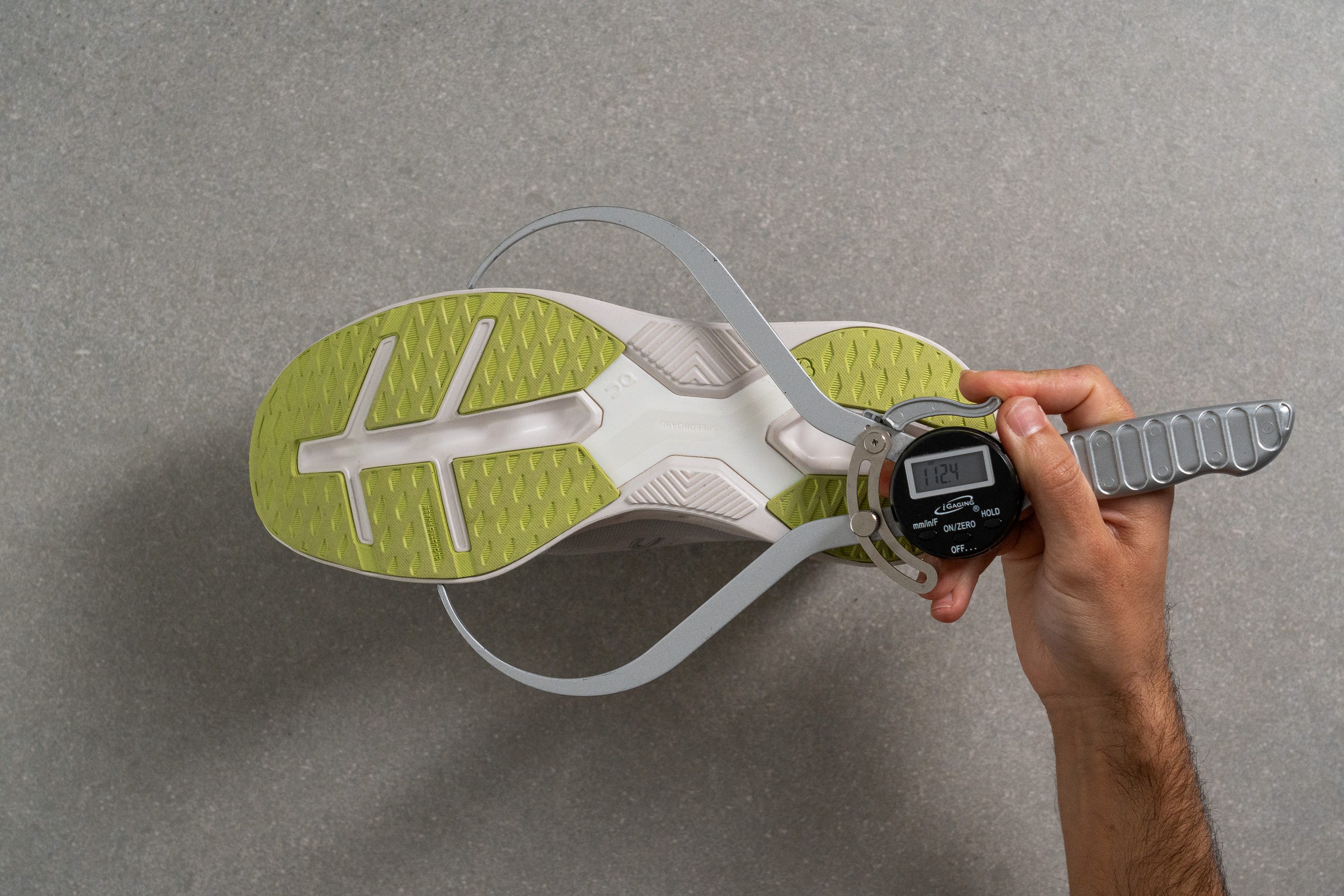
| Cloudeclipse | 112.4 mm |
| Average | 114.4 mm |
Midsole width - heel
In the heel, it's wider than average, measuring 92.0 mm with our callipers.
While this is mostly average, it's good news for heel strikers, especially when combined with the previously mentioned 9.0-mm drop of the shoe.
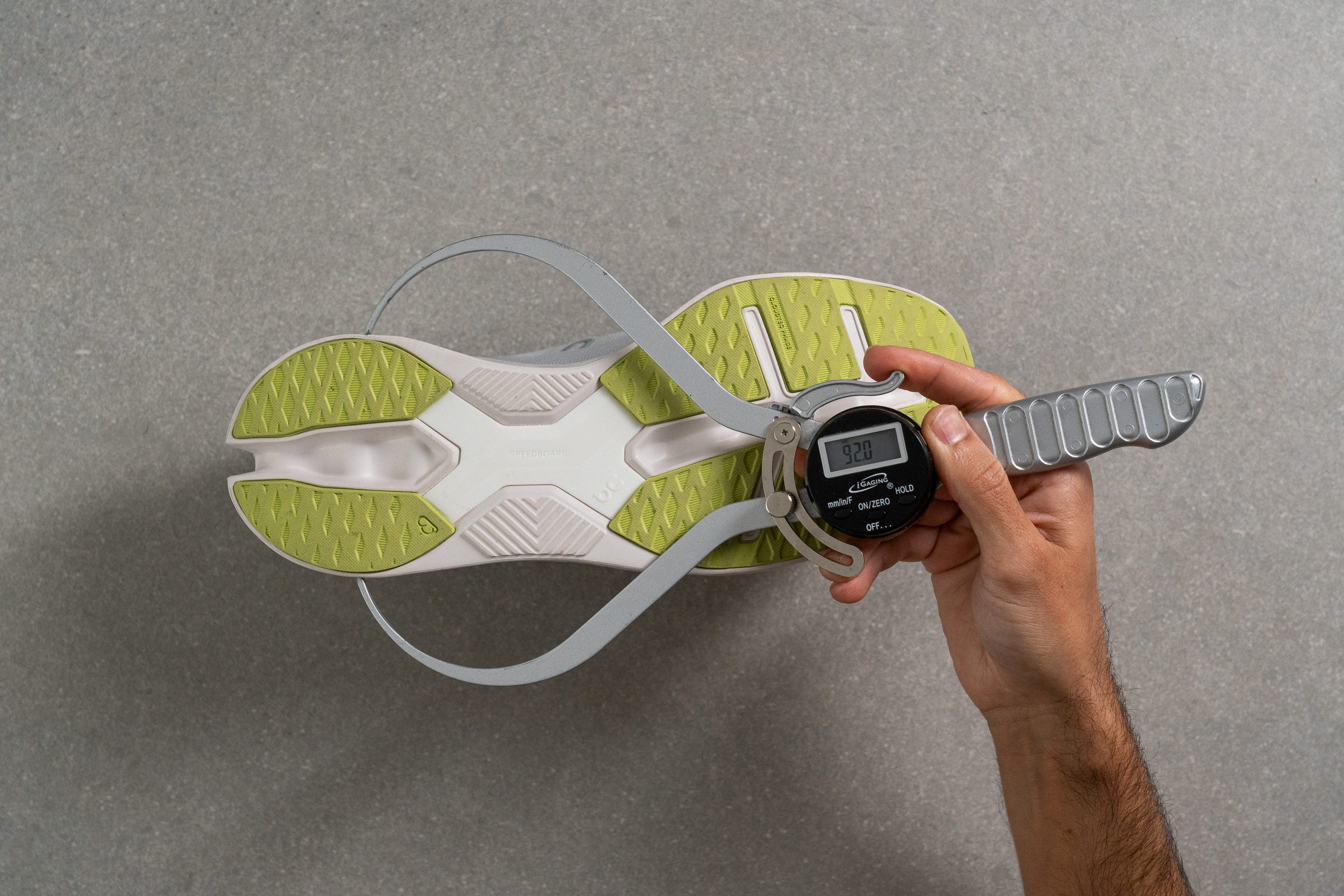
| Cloudeclipse | 92.0 mm |
| Average | 90.6 mm |
Durability
Toebox durability
Despite the fact that uppers with high breathability scores often perform poorly in durability tests, we had high expectations for the Cloudeclipse, especially considering its £180 price tag.
Fortunately, On came through with an exceptionally durable engineered mesh that withstood our Dremel test impressively.
After spinning at 5K RPM (3.2N of force), the tool couldn't create a full hole in the upper. The minor damage we observed earns a solid 3 out of 5 from us, surpassing the performance of most shoes on the market.
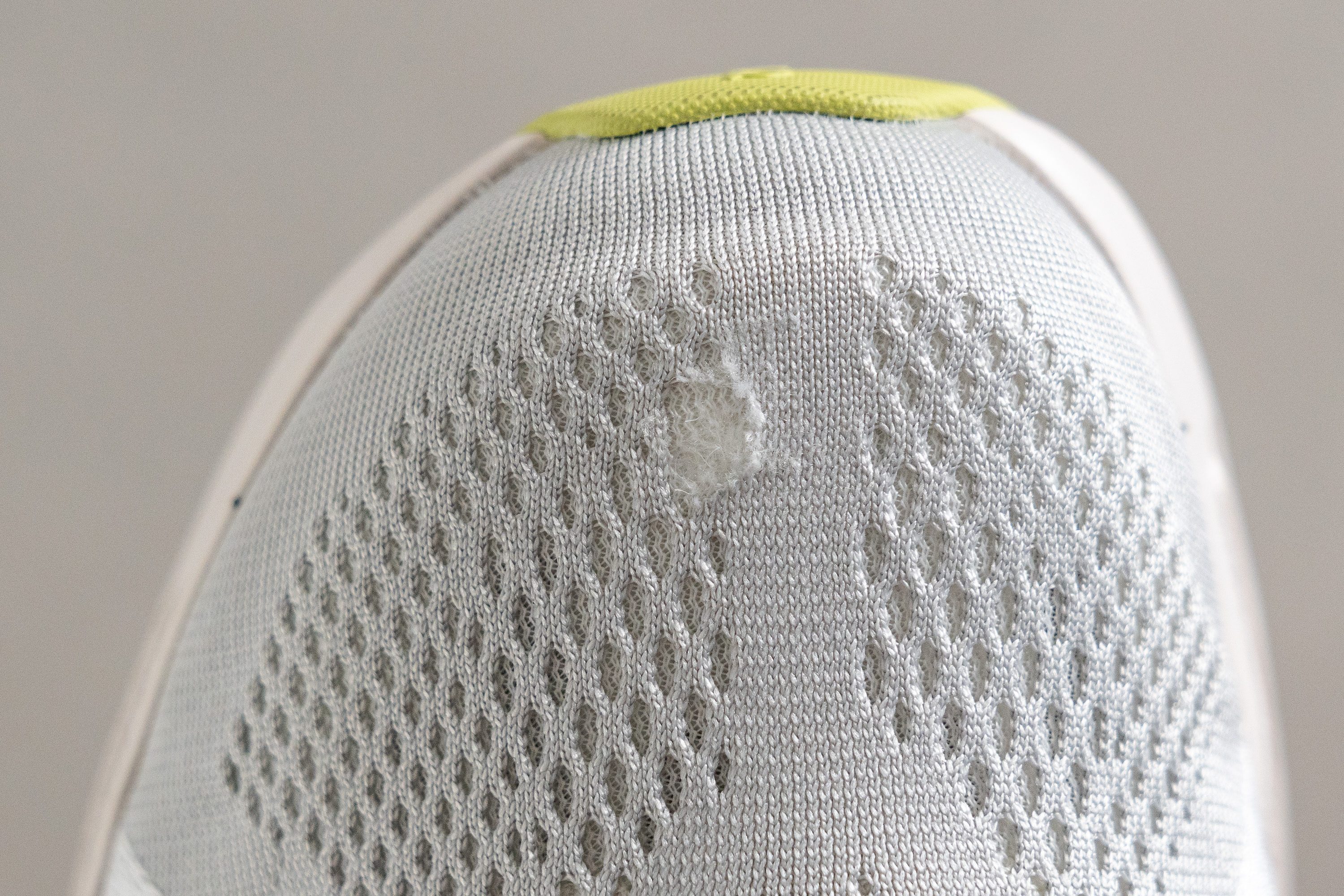
| Cloudeclipse | 3 |
| Average | 2.6 |
Heel padding durability
Yet, while the toebox impressed, the heel was a letdown.
Using the same force, duration, and RPM, the outcome was drastically worse. In fact, it was the lowest possible, scoring a disappointing 1 out of 5.
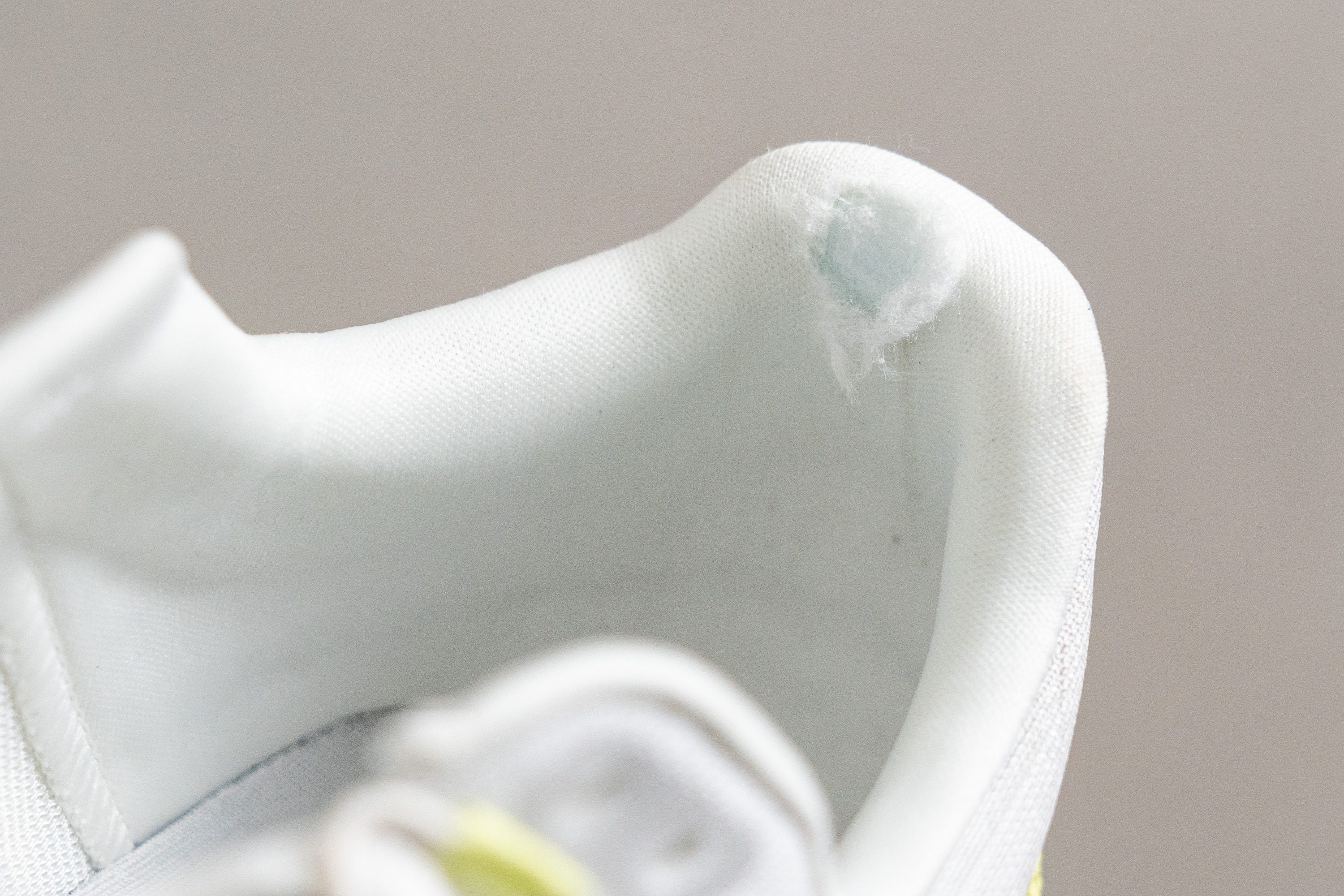
| Cloudeclipse | 1 |
| Average | 3.4 |
Outsole hardness
We used the Shore C durometer to measure the hardness of the outsole. We found that On really focused on durability, using an extremely hard rubber that registered at 87.4 HC.

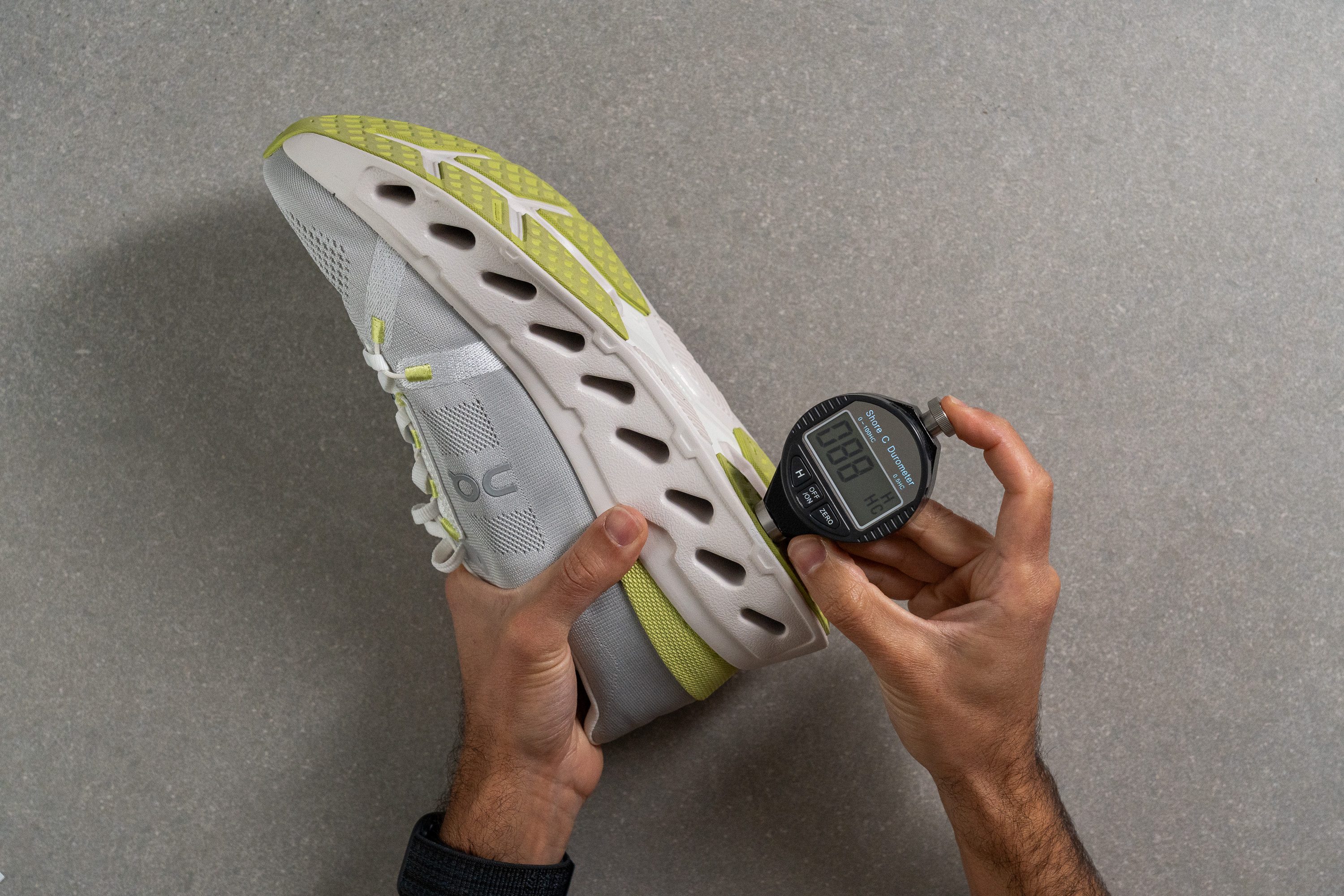
| Cloudeclipse | 87.4 HC |
| Average | 79.2 HC |
Outsole durability
To see if the high outsole hardness does its job, we fired up the Dremel one last time, this time at 10K RPM with the same 3.2N of force.
After the test, we measured an impressively small indentation of only 0.5 mm, confirming the outsole's fantastic durability. We can confidently say this shoe is built to last!
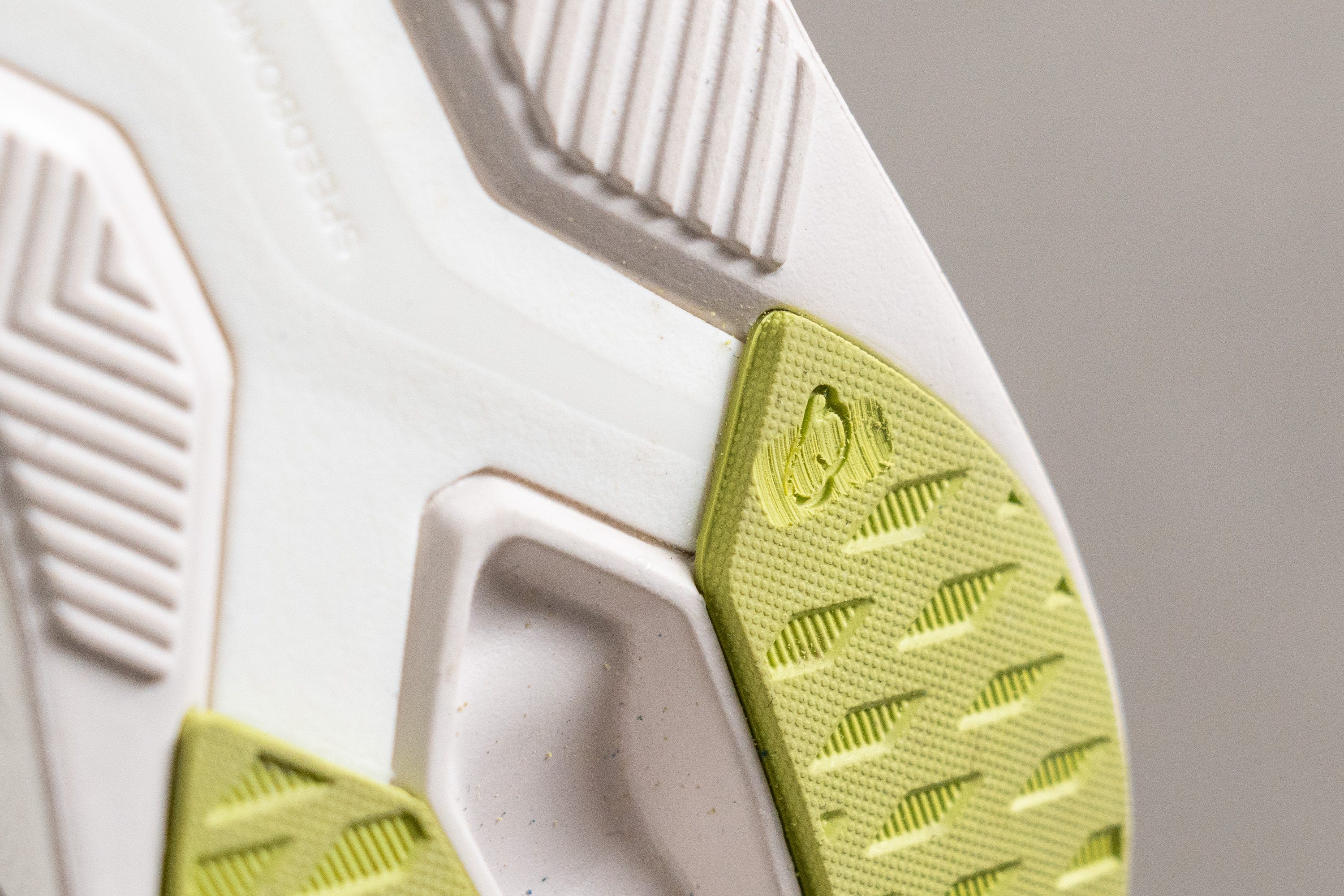
| Cloudeclipse | 0.5 mm |
| Average | 1.1 mm |
Outsole thickness
The outsole thickness is a tad below the average at 2.9 mm, but that's no worry, considering the amazing results from our previous durability test.
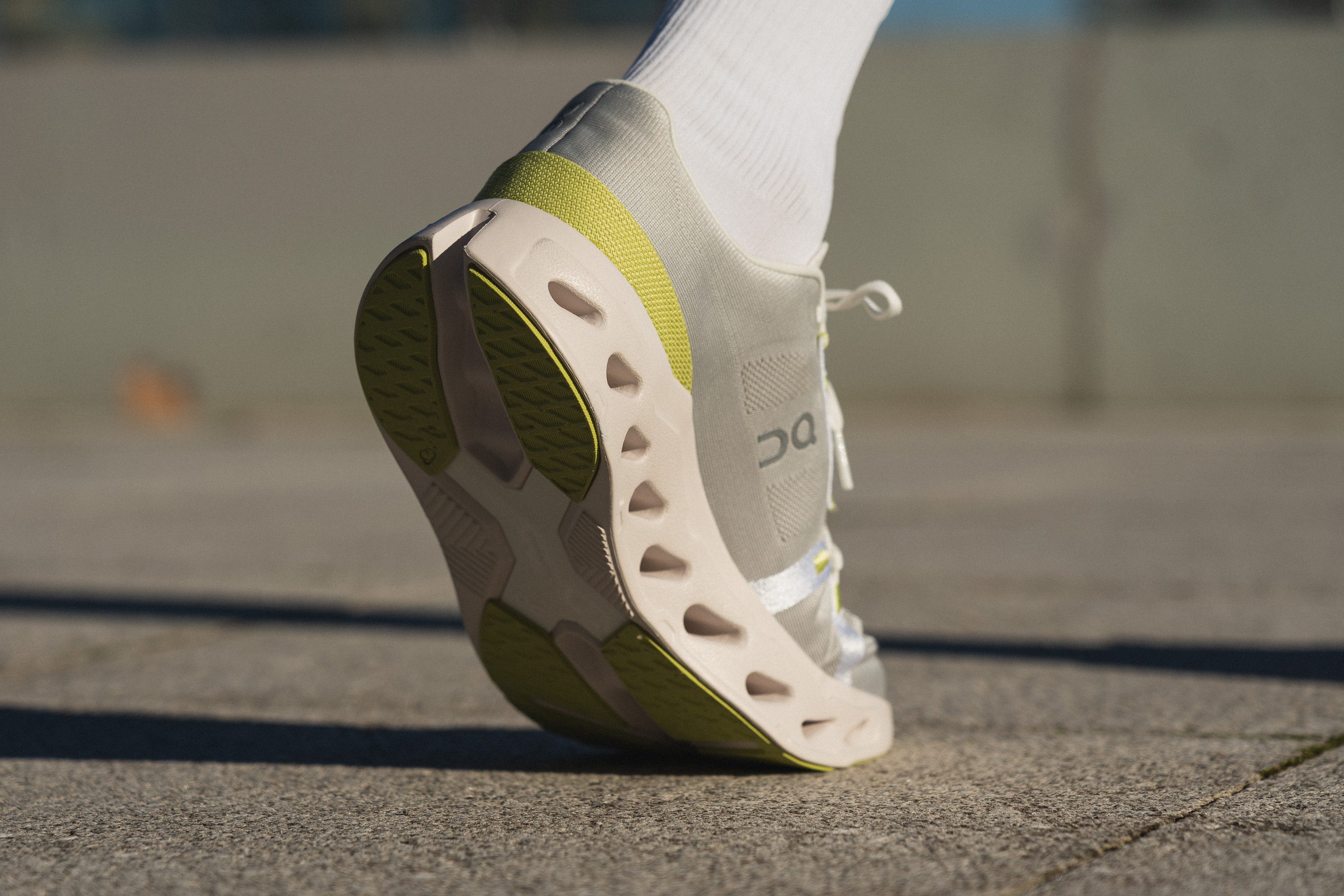
All looks great here, let's move forward!
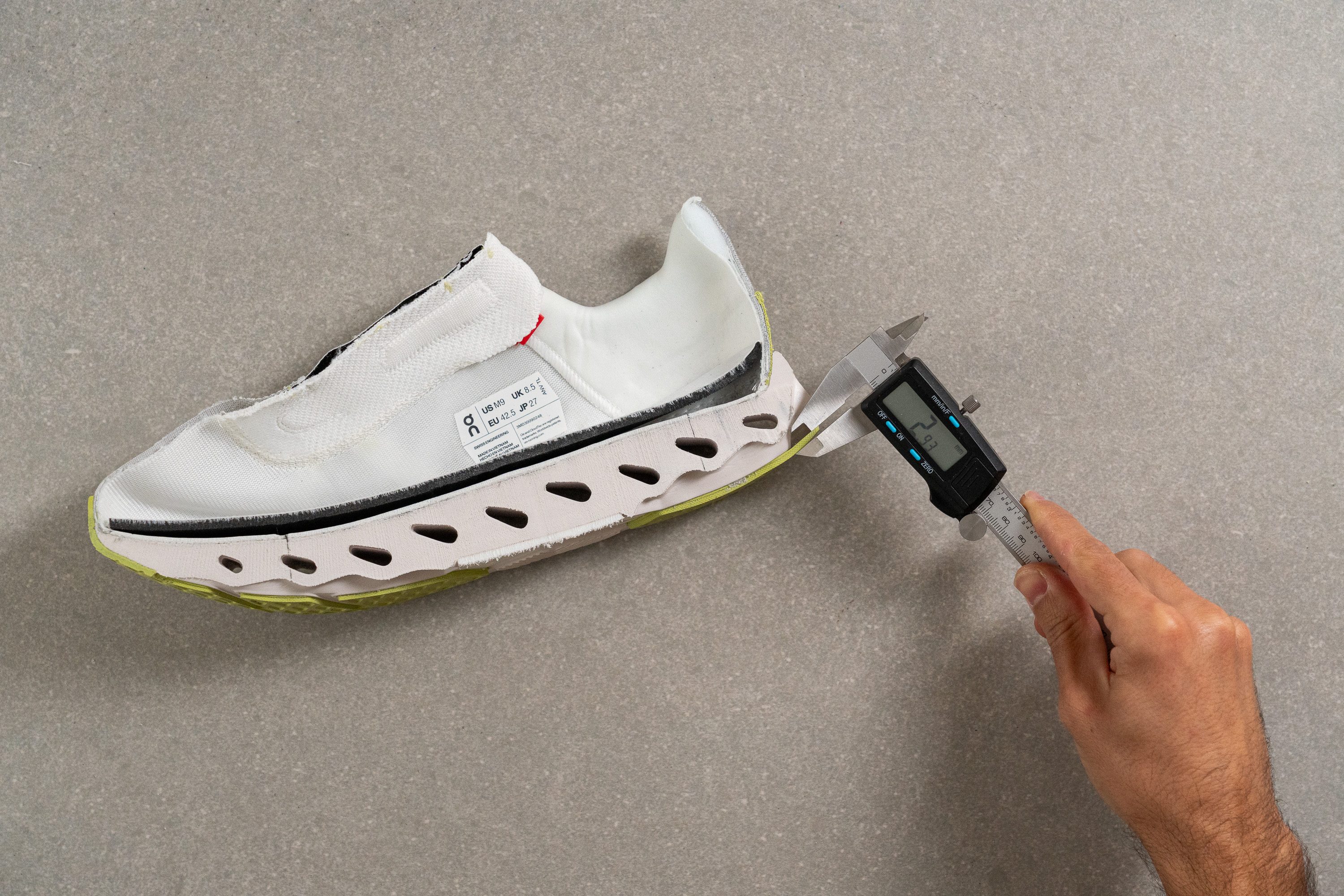
| Cloudeclipse | 2.9 mm |
| Average | 3.2 mm |
Misc
Insole thickness
At 4.1 mm thick, the insole is pretty much average. It didn't give us any issues, and we found it to be comfortable.
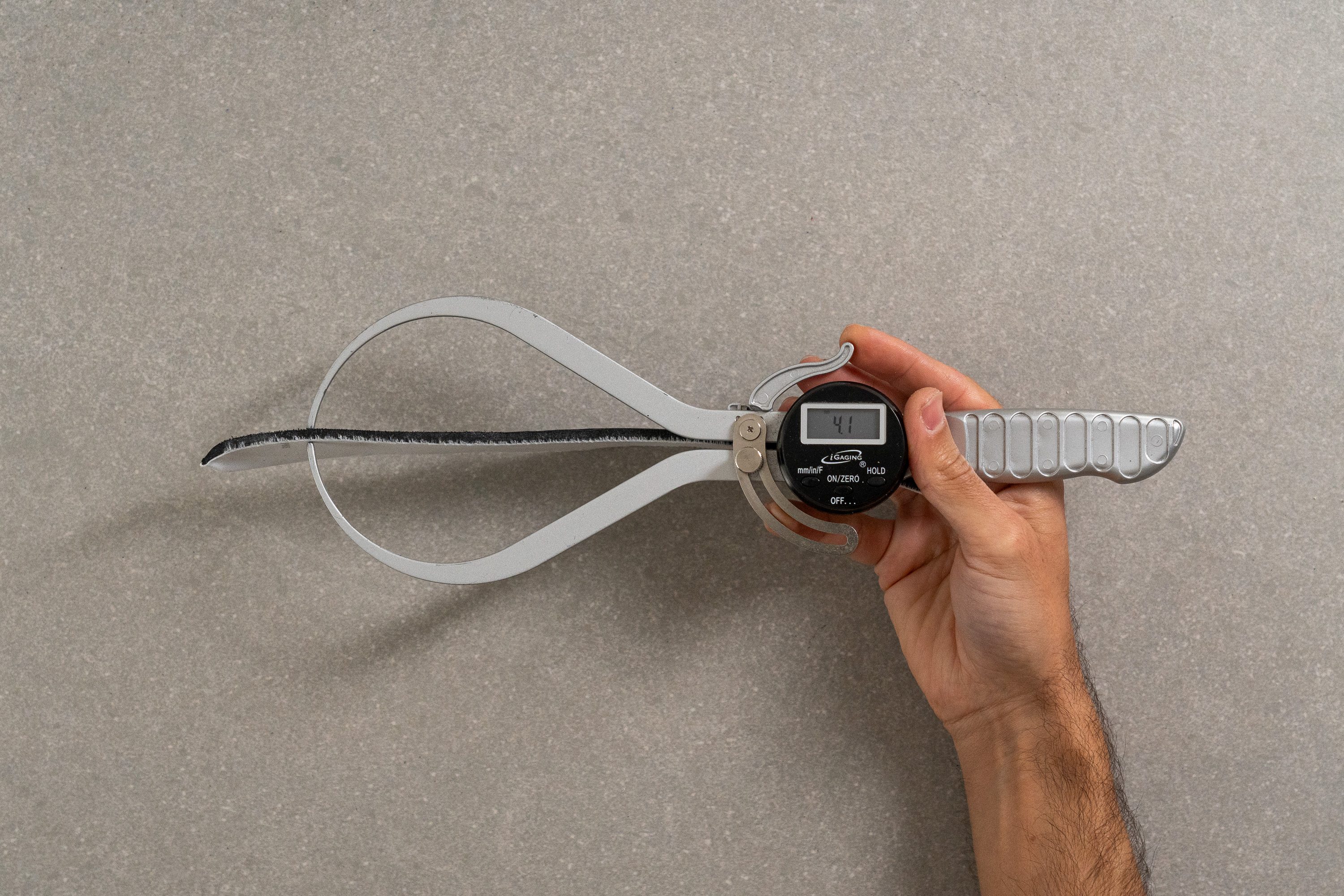
| Cloudeclipse | 4.1 mm |
| Average | 4.5 mm |
Removable insole
The insole in the On Cloudeclipse is removable, and we easily fitted other insoles into the shoe.
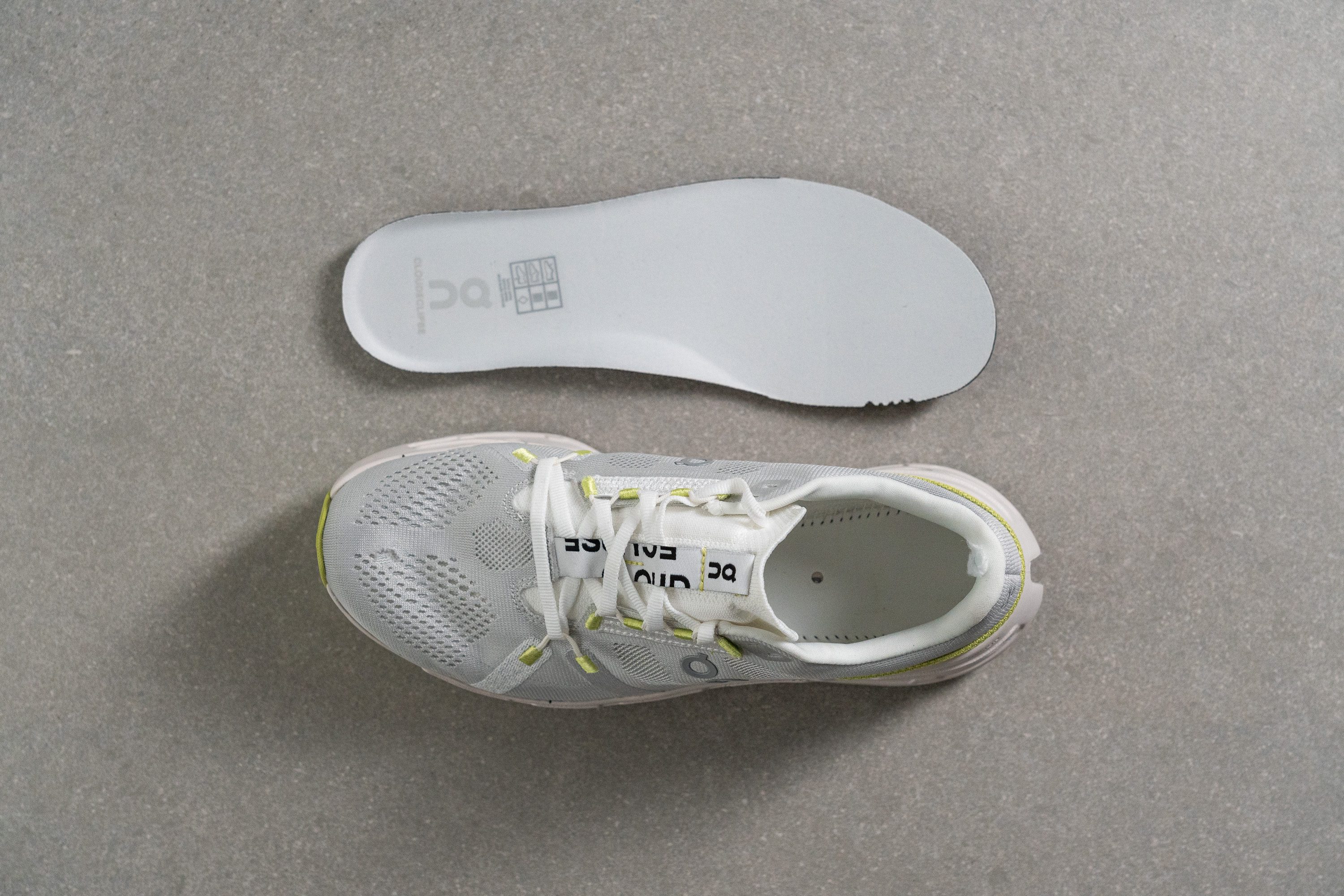
| Cloudeclipse | Yes |
Midsole softness in cold
To check how the Cloudeclipse performs in extremely cold conditions, we froze it for 20 minutes. Once done, we tested it again and discovered that the softness changed to 32.3 HA.
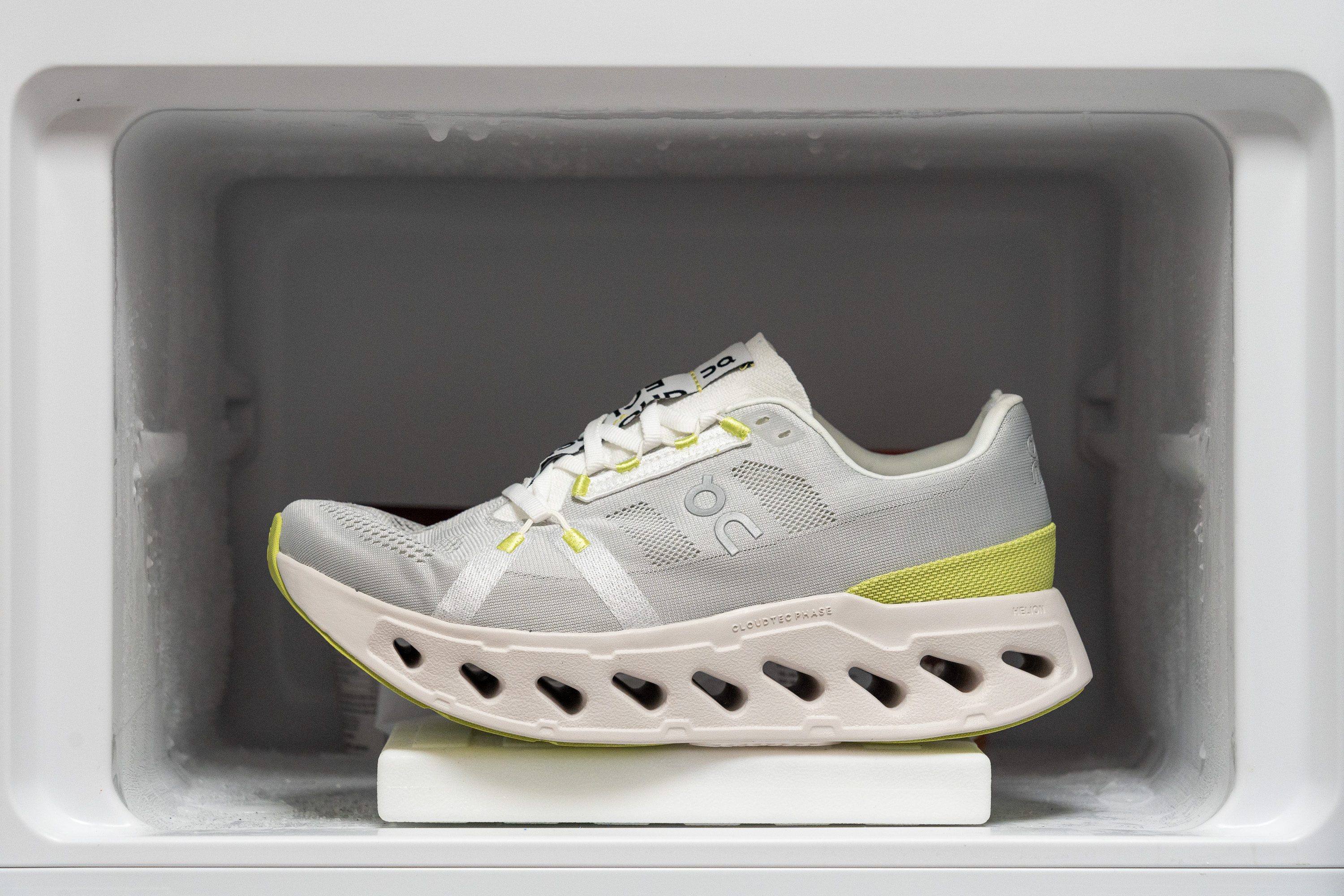
| Cloudeclipse | 32.3 HA |
| Average | 25.0 HA |
Midsole softness in cold (%)
It's only an 18.3% increase, but since this shoe is already firm, it will feel even firmer.
| Cloudeclipse | 18% |
| Average | 24% |
Reflective elements
One of the easiest and coolest ways to add reflective elements to a running shoe is by using a reflective brand logo. That's exactly what On did. Doesn't it look super cool?
| Cloudeclipse | Yes |
Tongue padding
We found the tongue to be sufficiently padded, and our measurement of 4.8 mm confirms this, even though it's below the average.
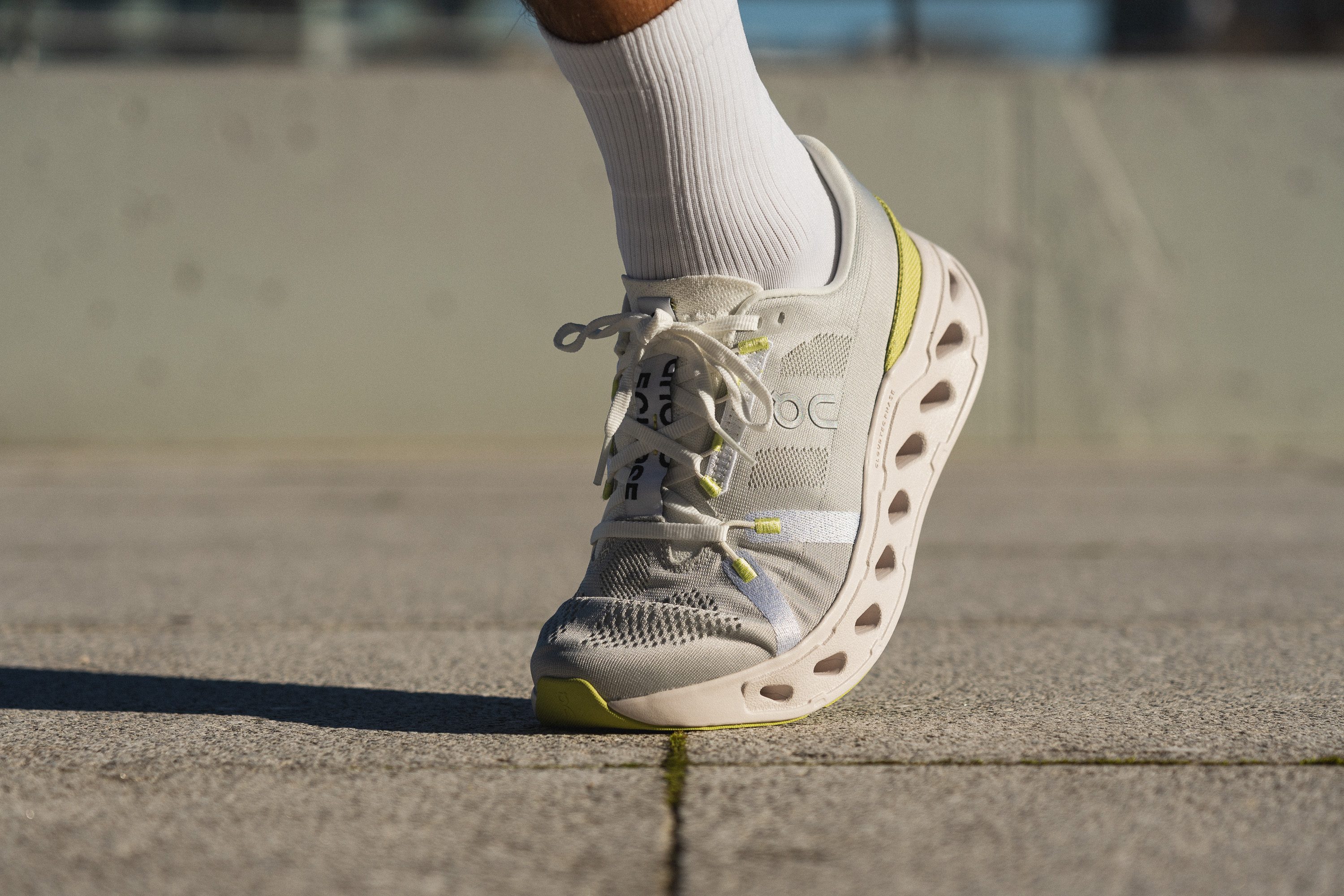
It's extremely unlikely that anyone will have issues with the instep from tightening the laces too hard. This is important, considering this shoe is designed for long endurance runs.
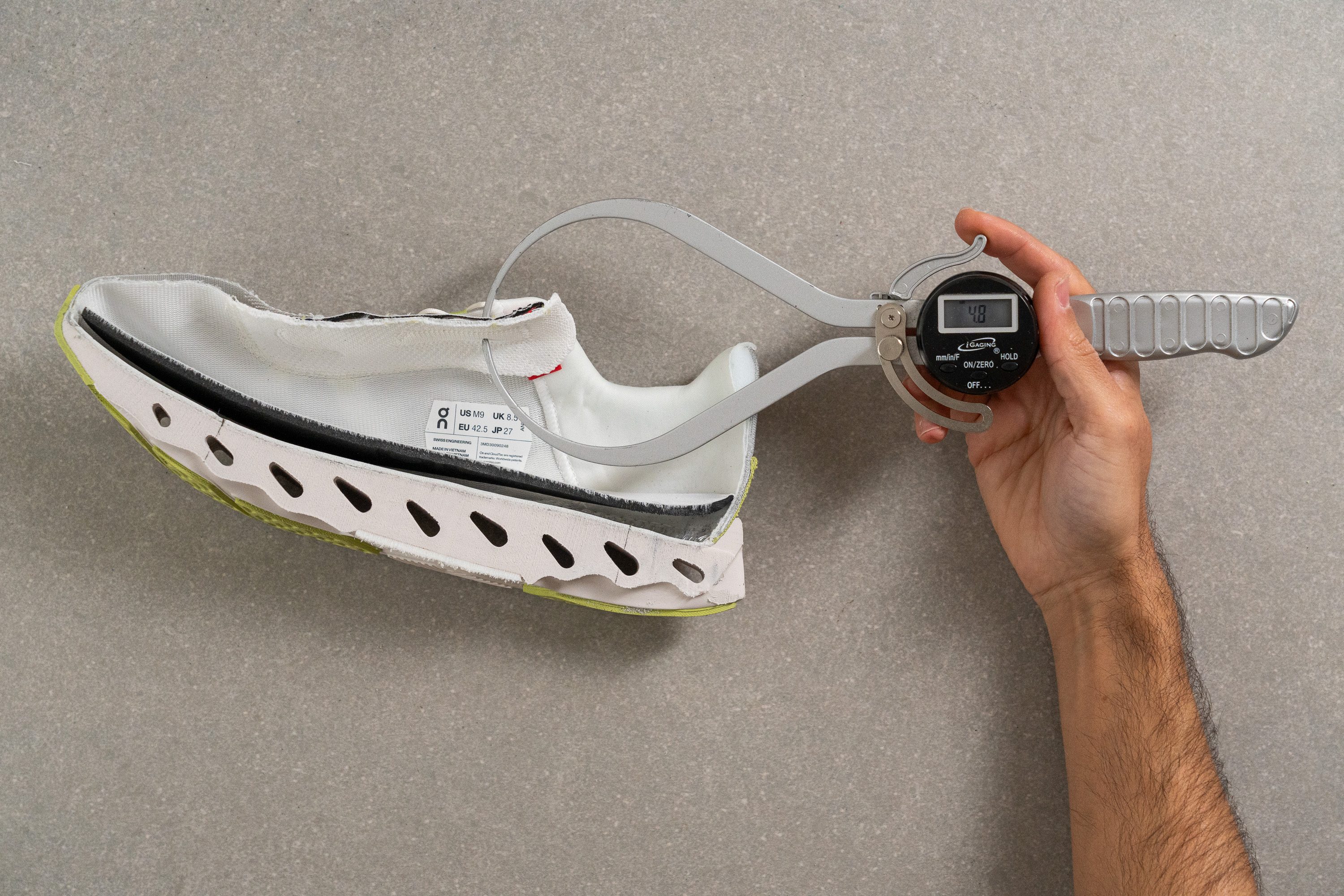
| Cloudeclipse | 4.8 mm |
| Average | 5.7 mm |
Tongue: gusset type
The tongue is fully gusseted to the sides of the shoe, ensuring a proper lockdown. This is exactly what we expect from a premium-priced shoe at £180.
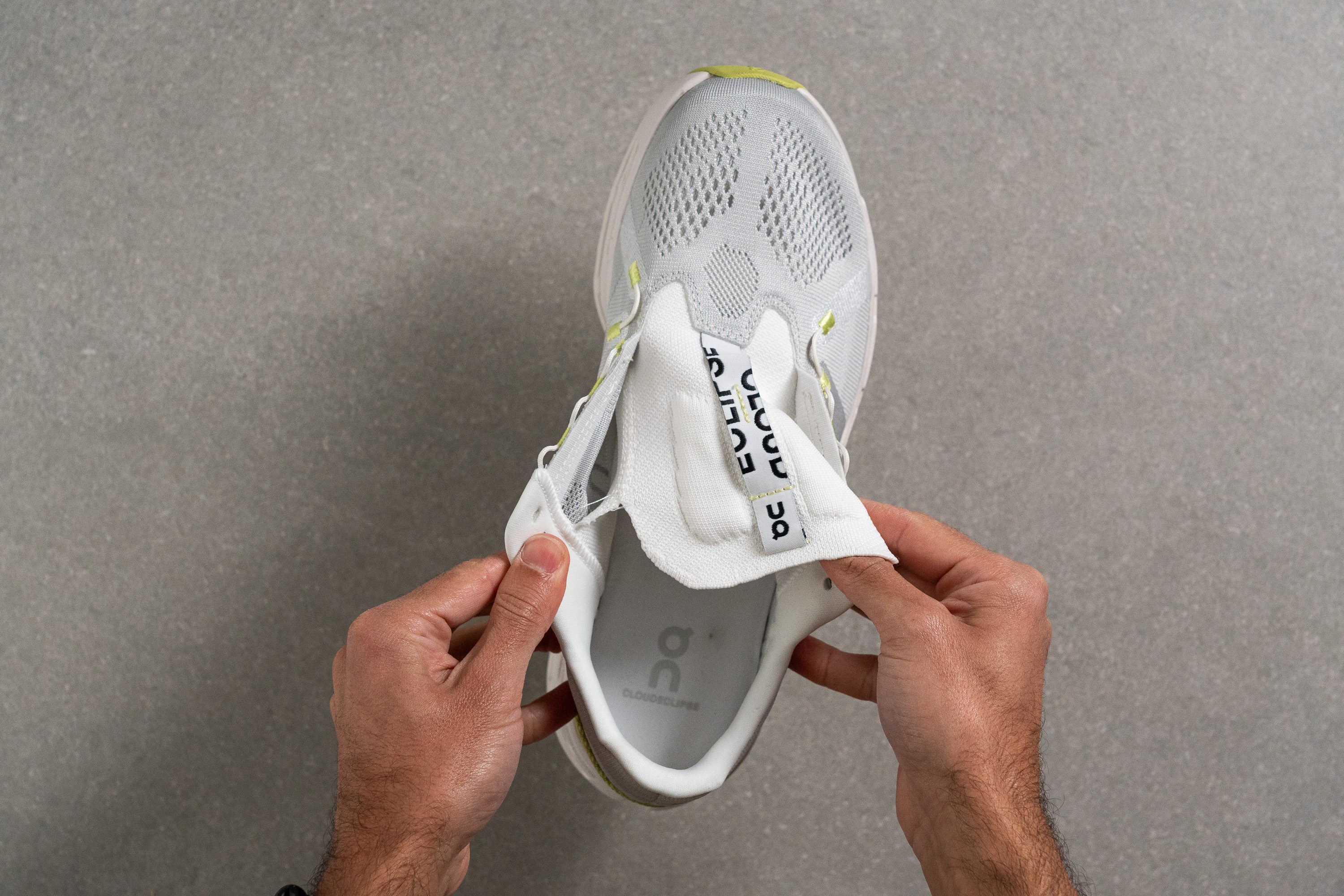
| Cloudeclipse | Both sides (full) |
Heel tab
In our experience, this shoe doesn't really need it from a practical standpoint, but adding a heel tab would've been a nice touch for looks...
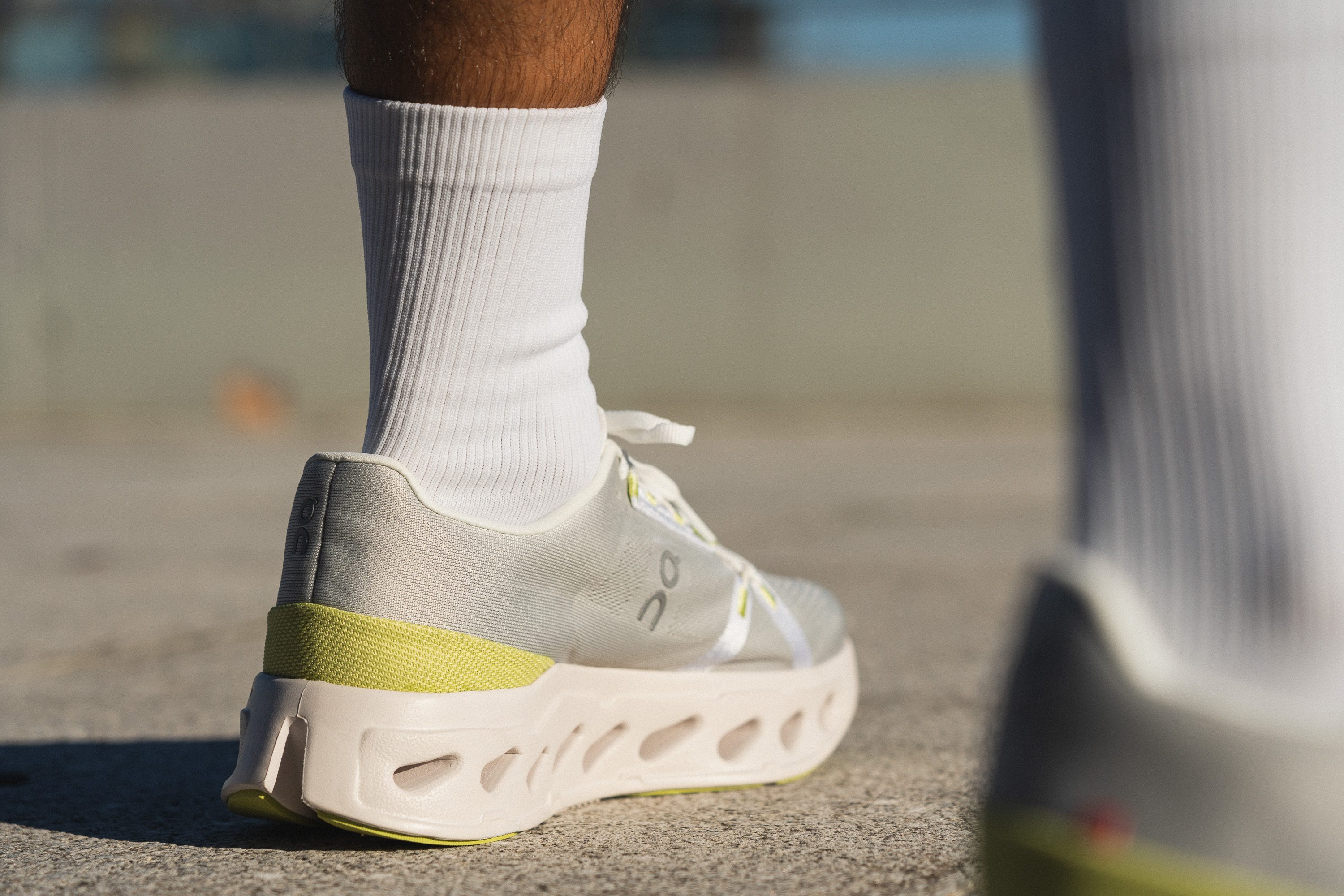
| Cloudeclipse | None |

